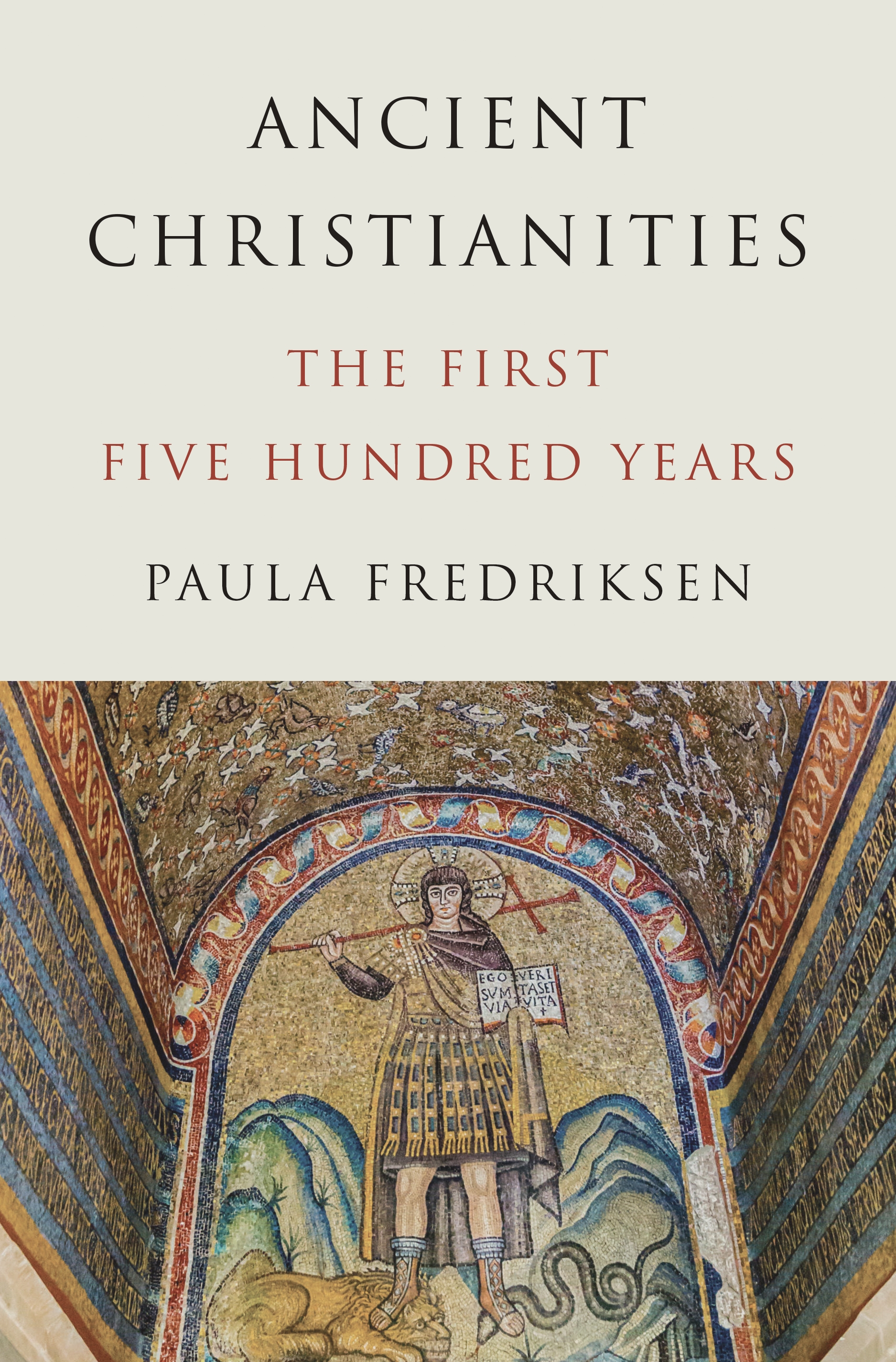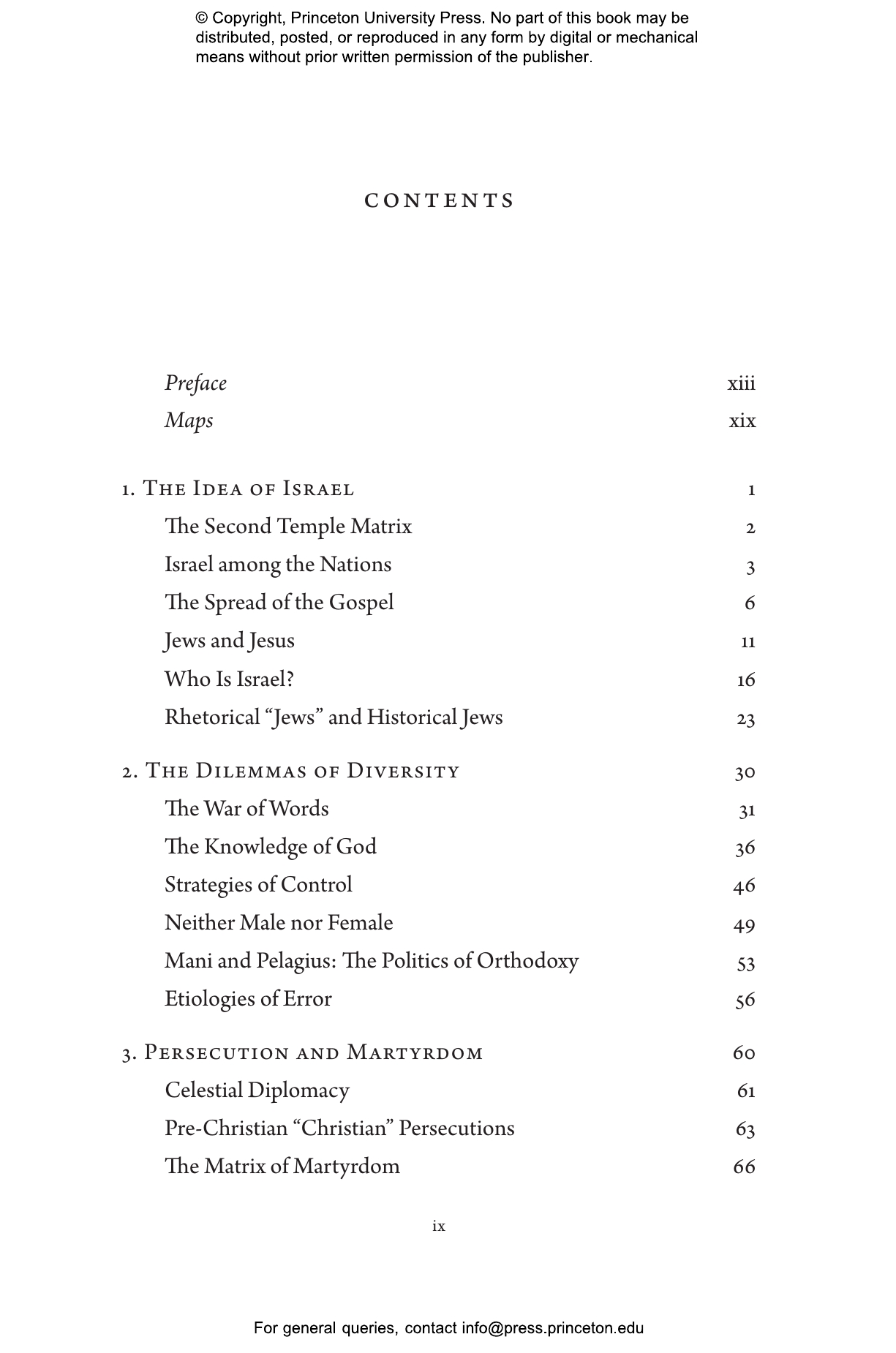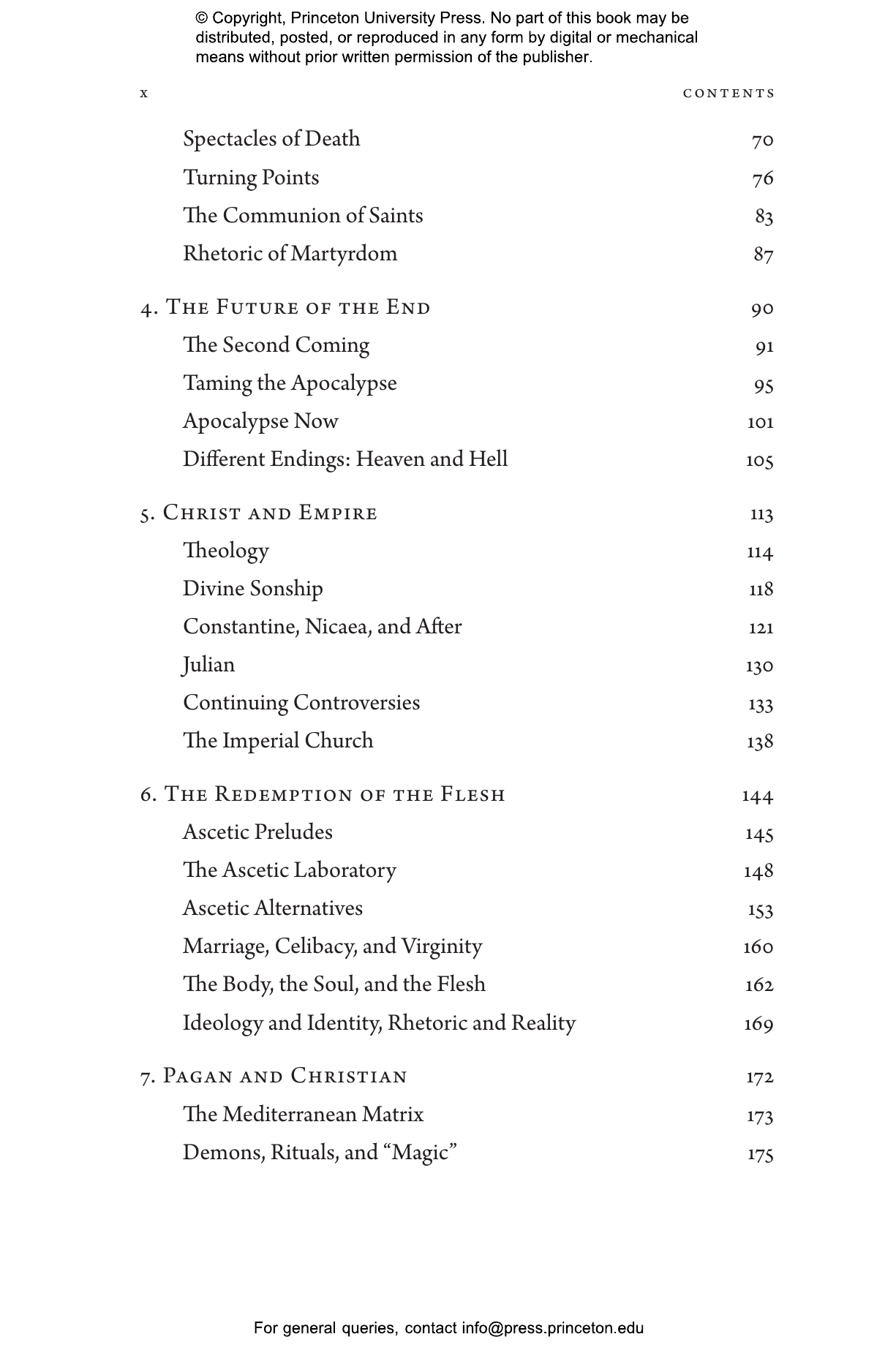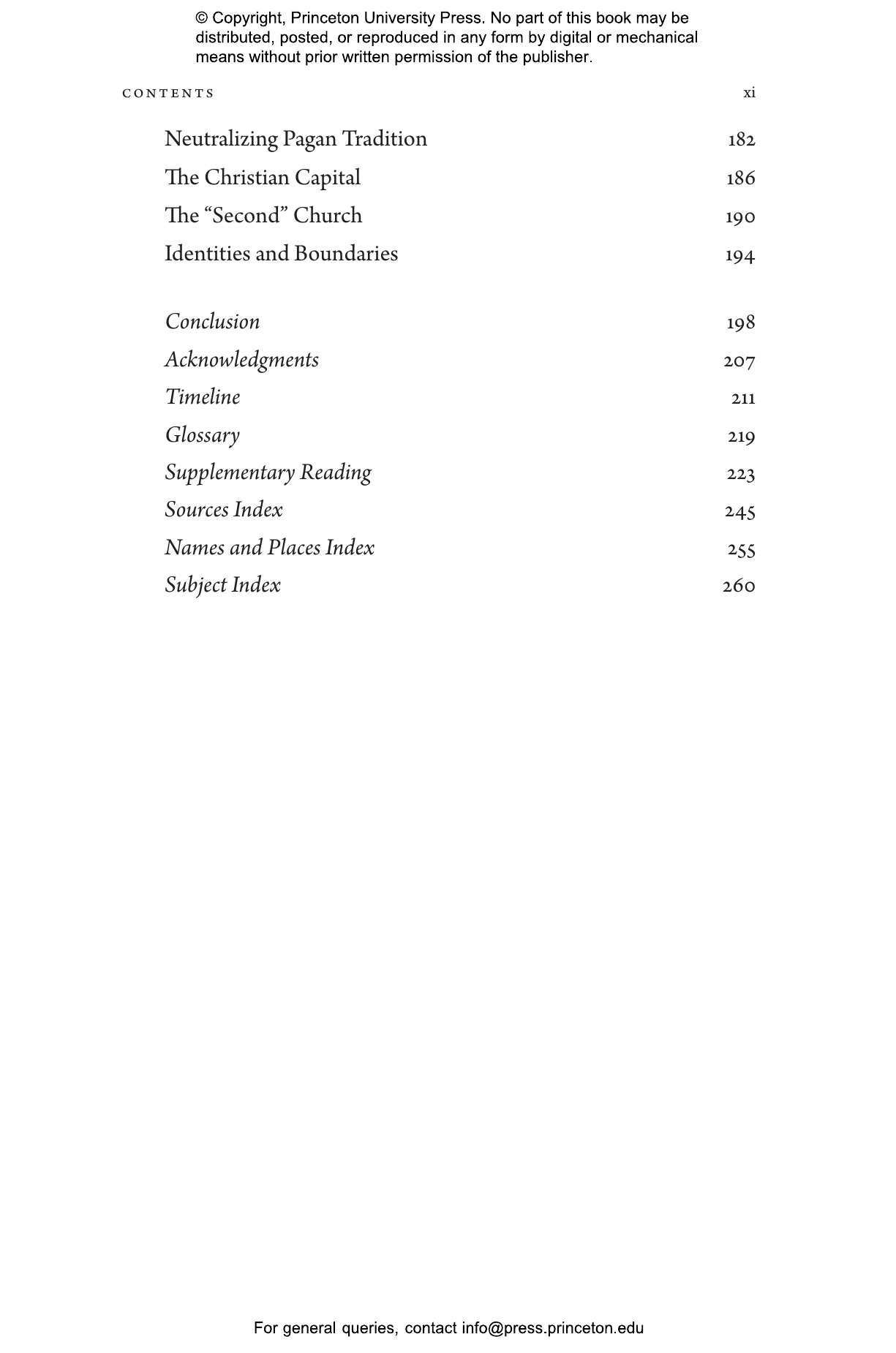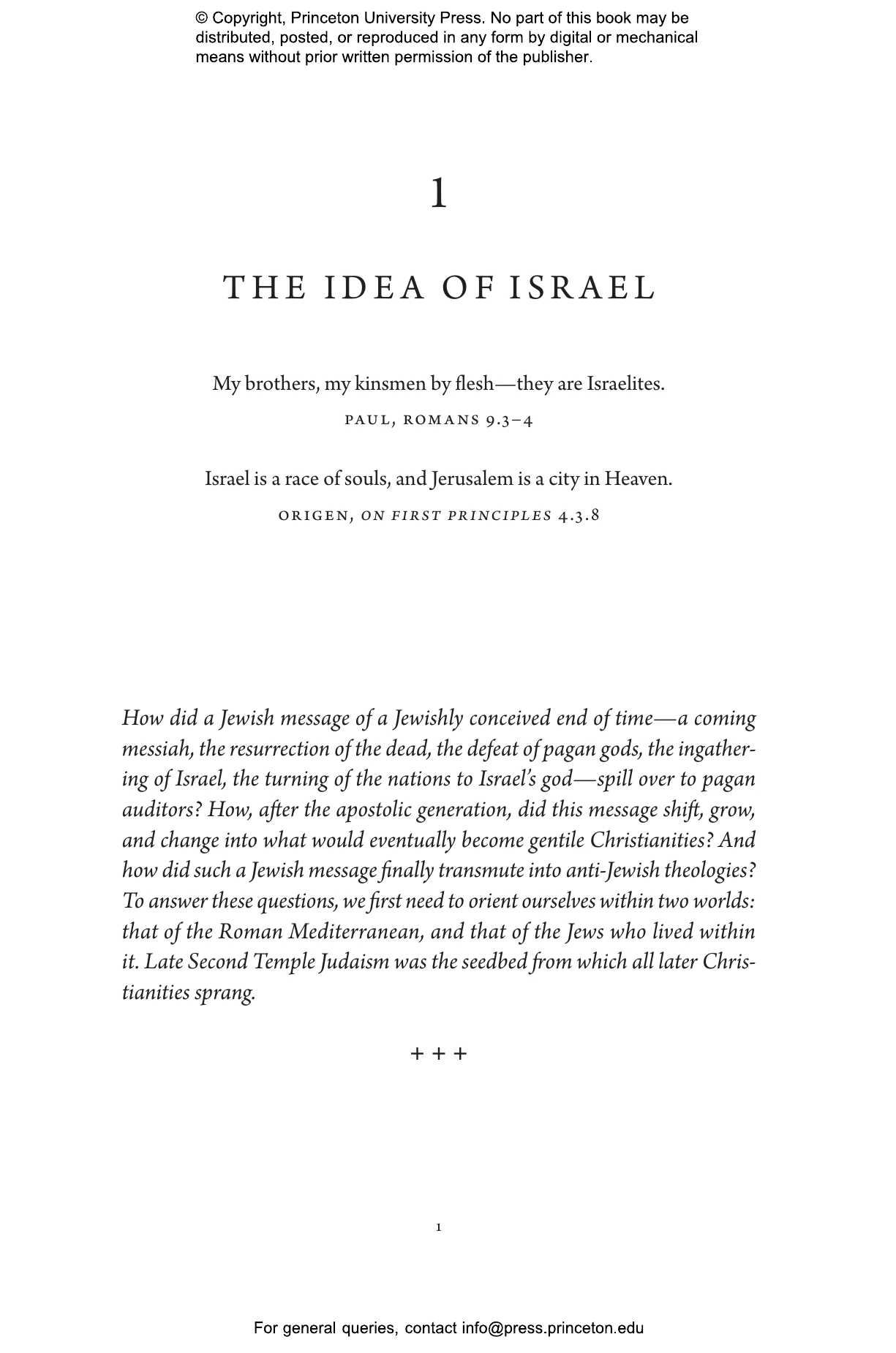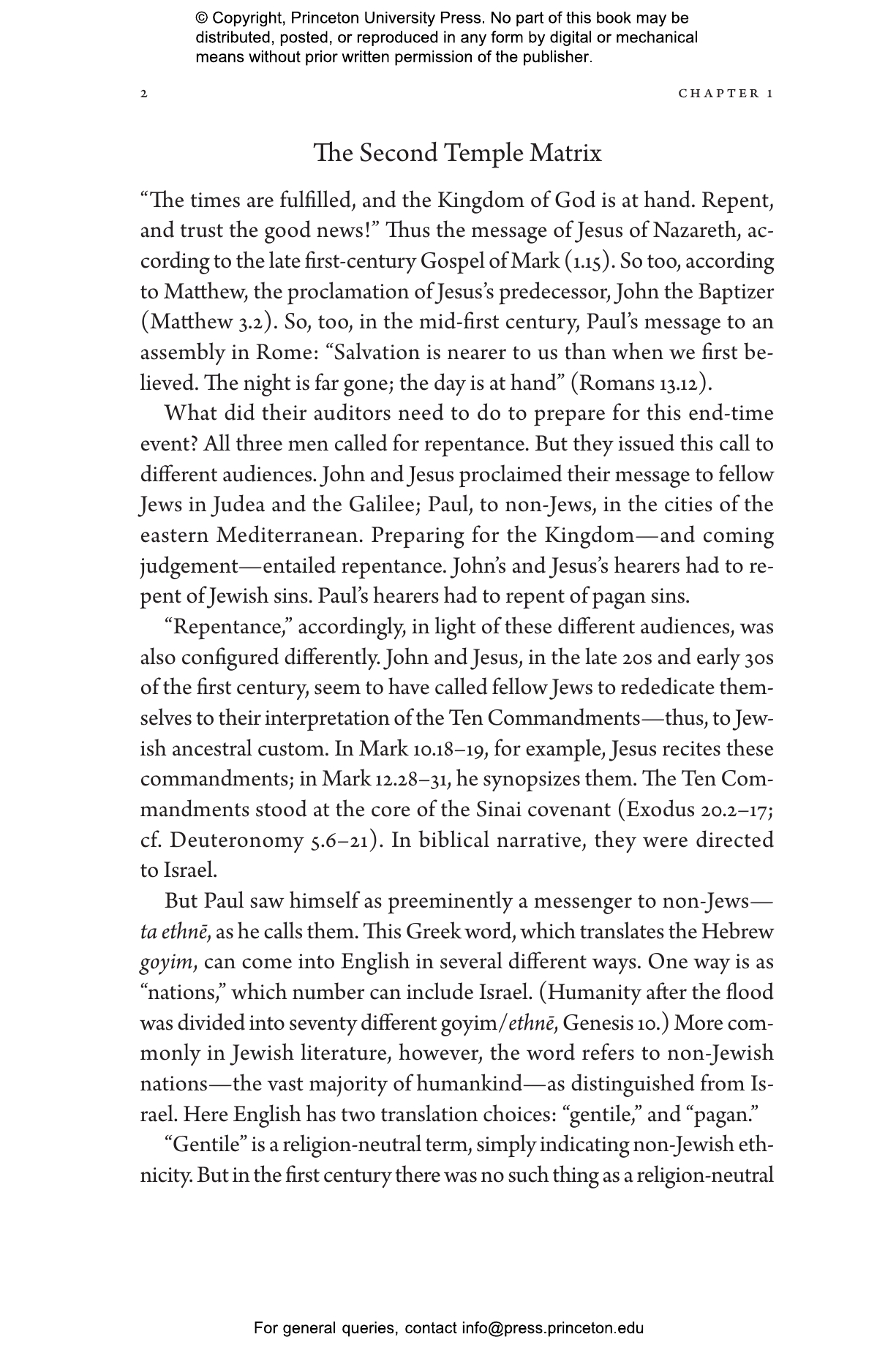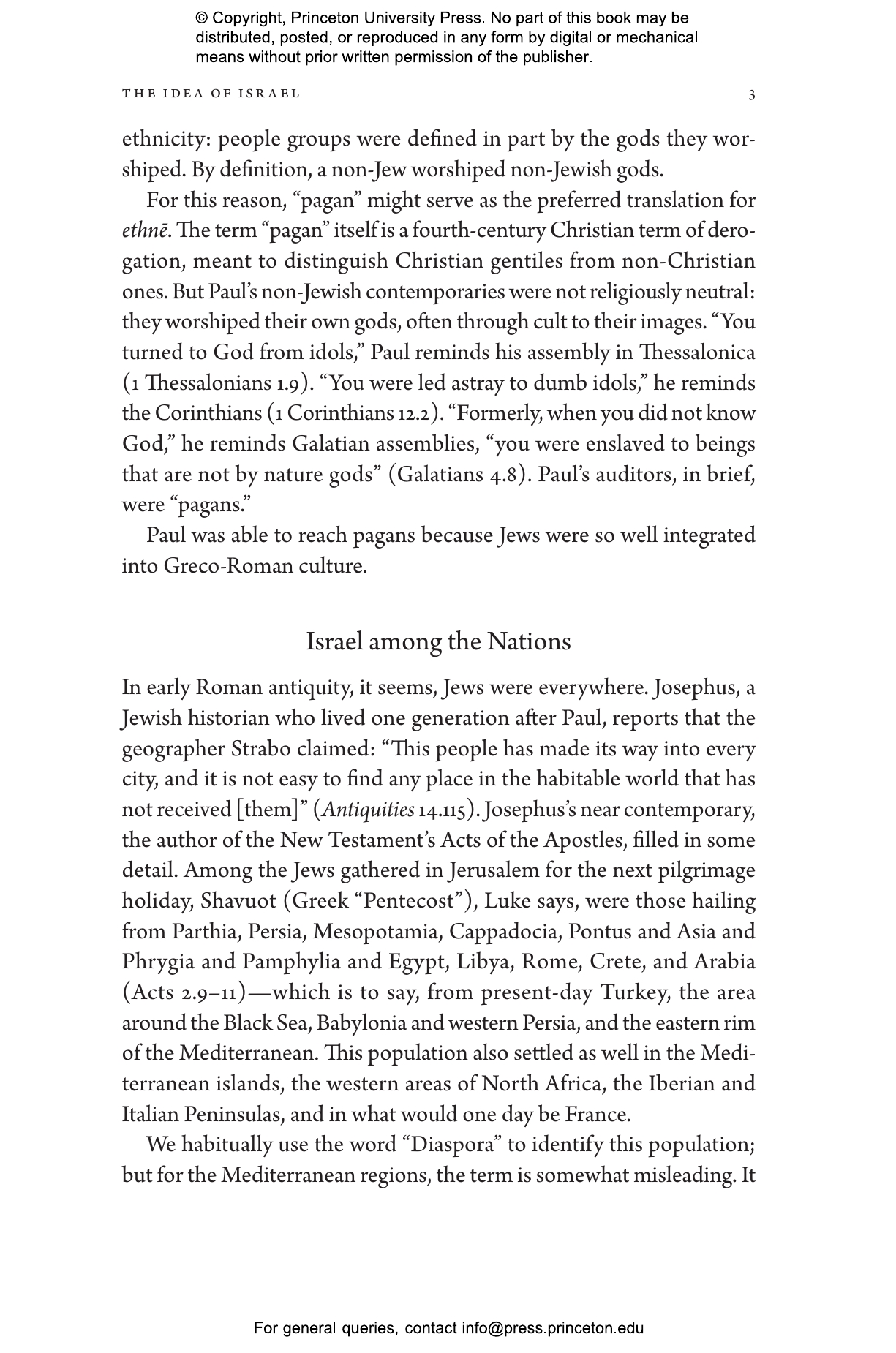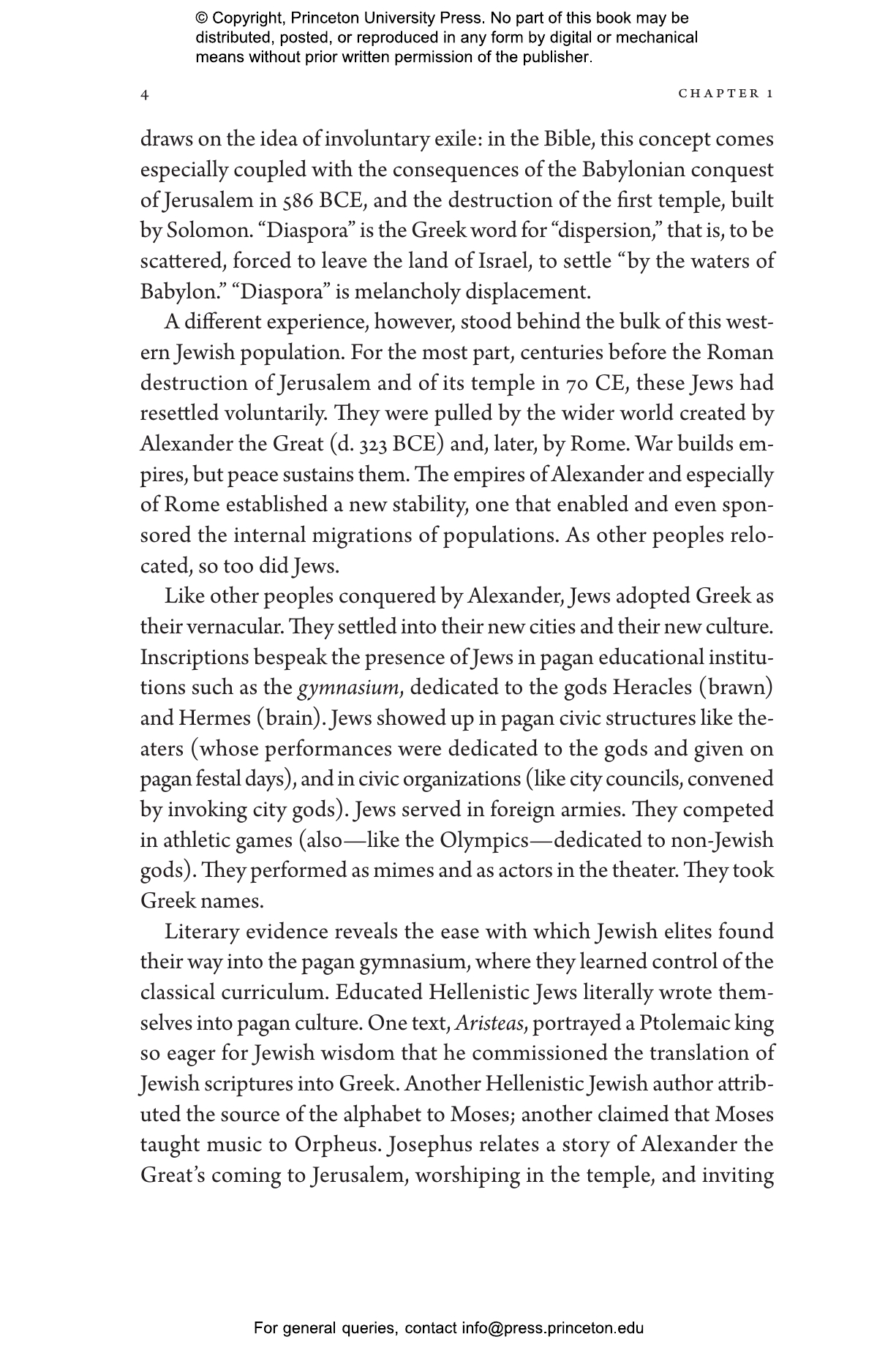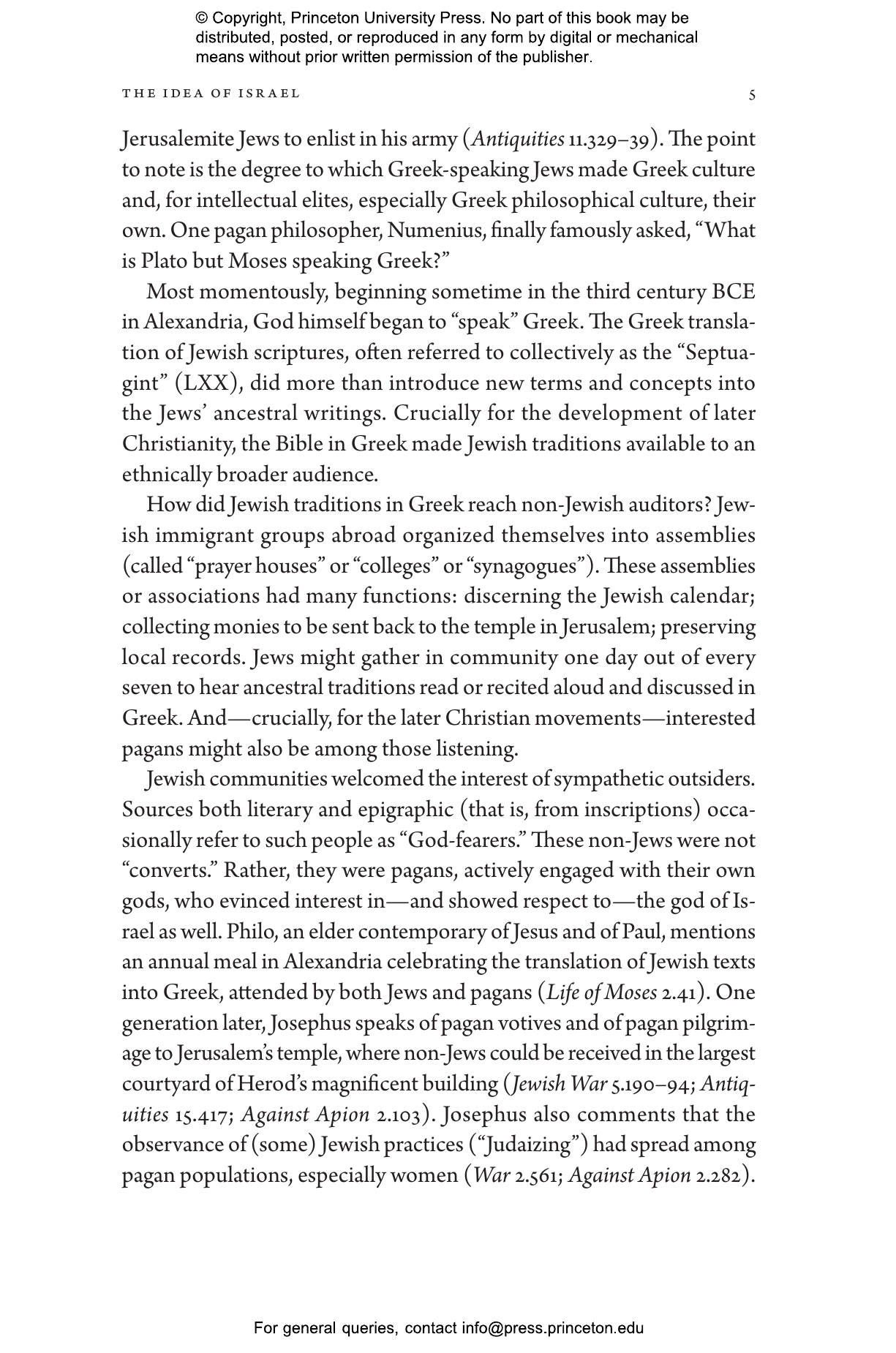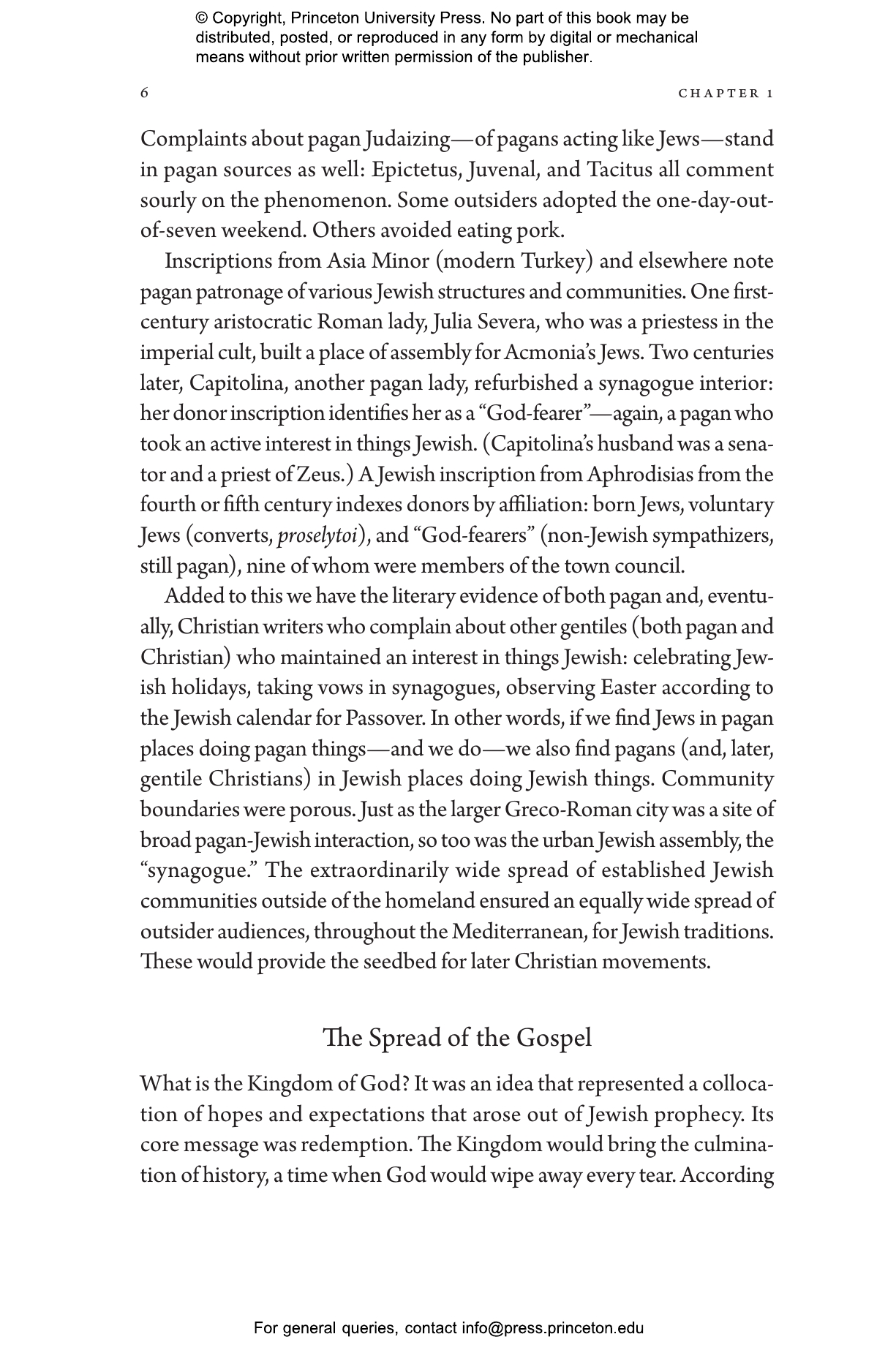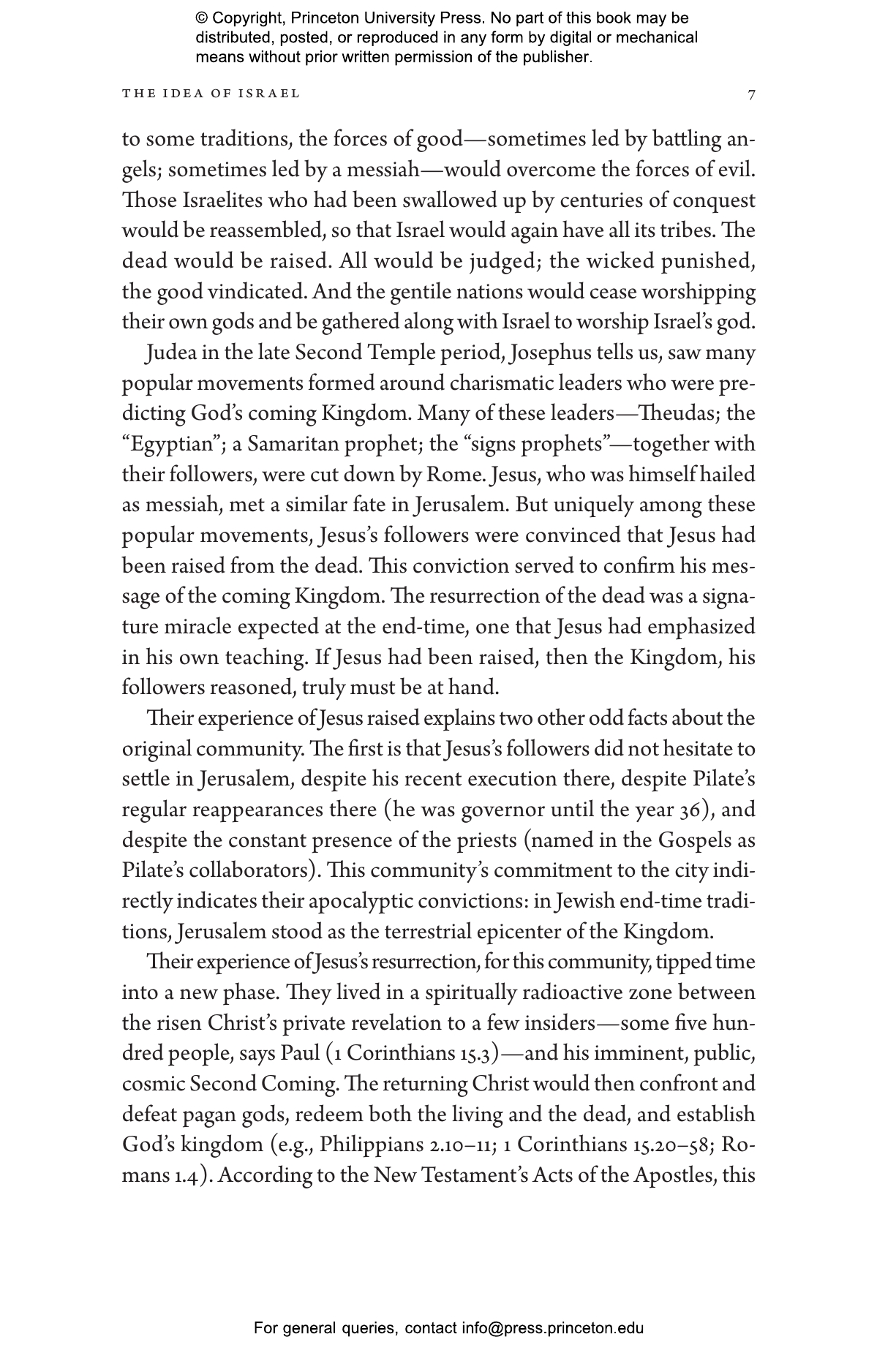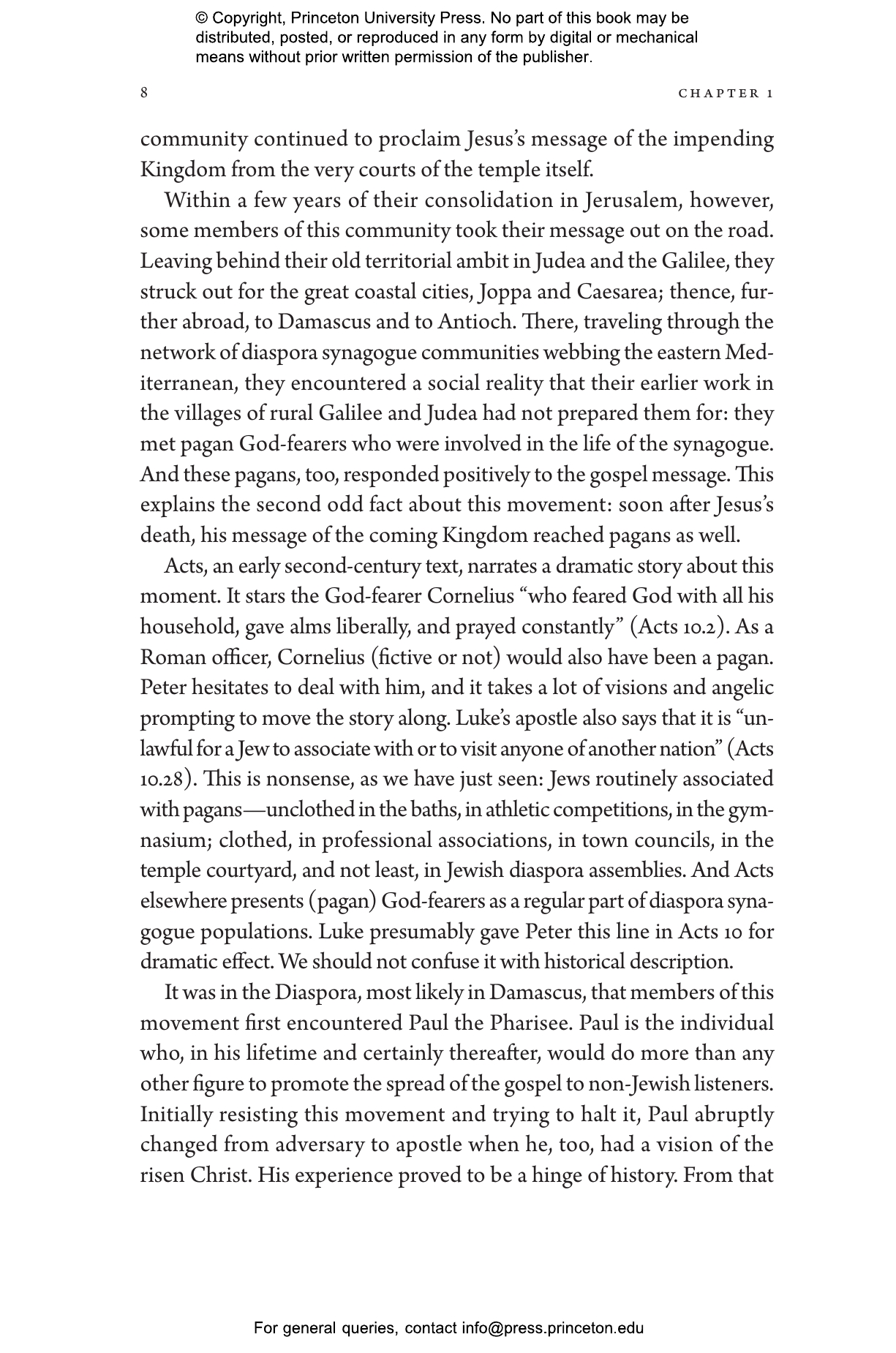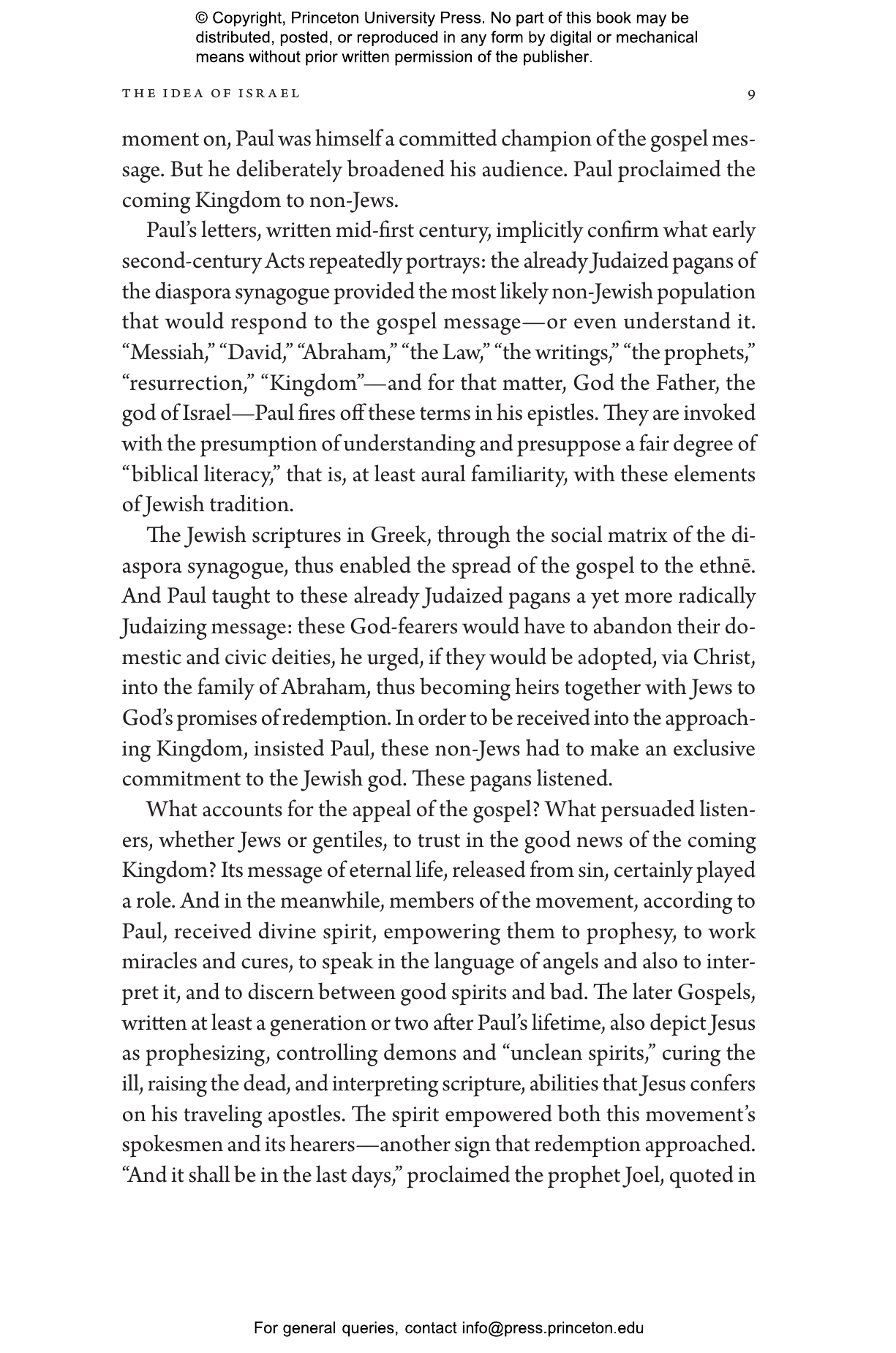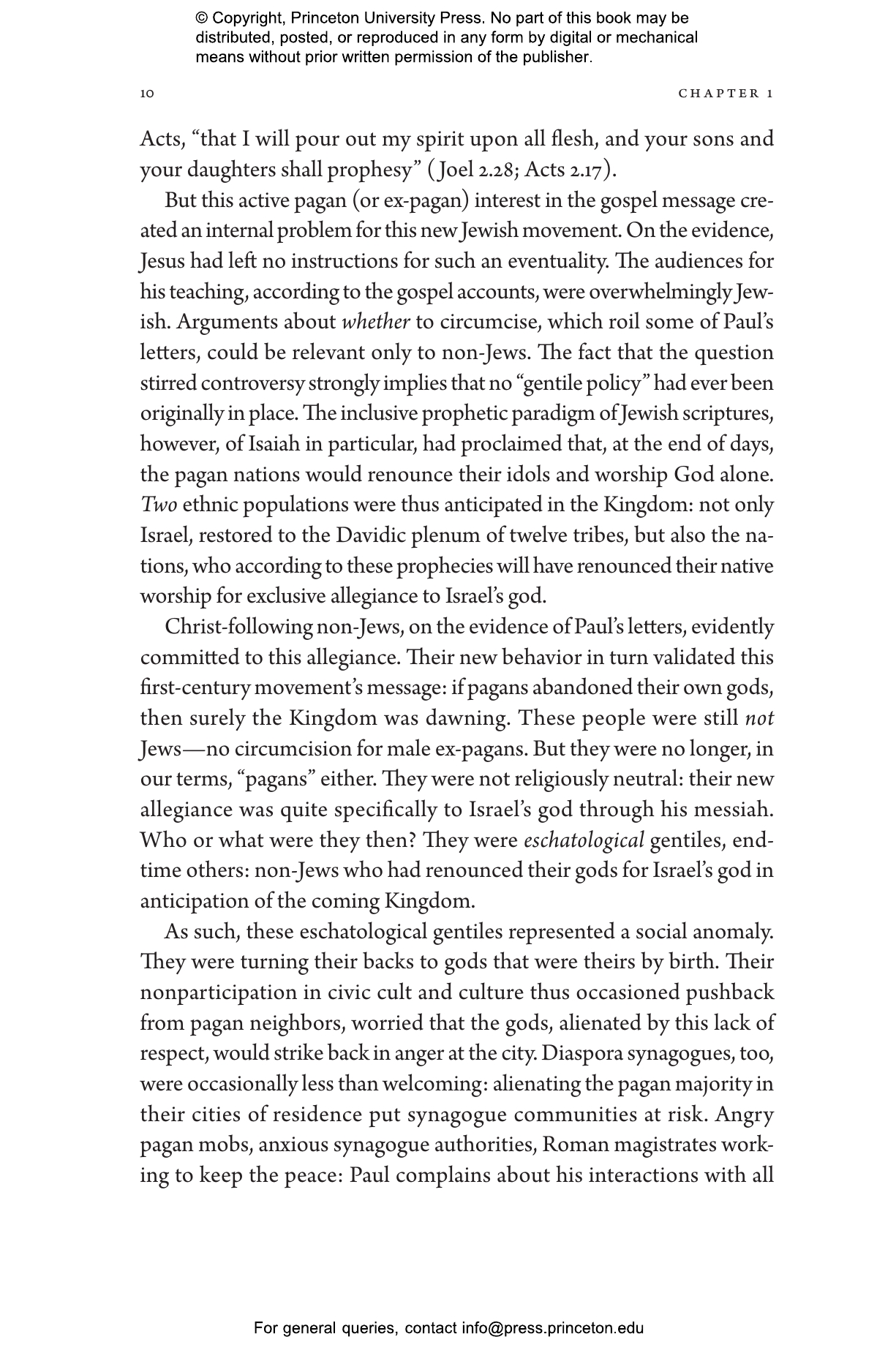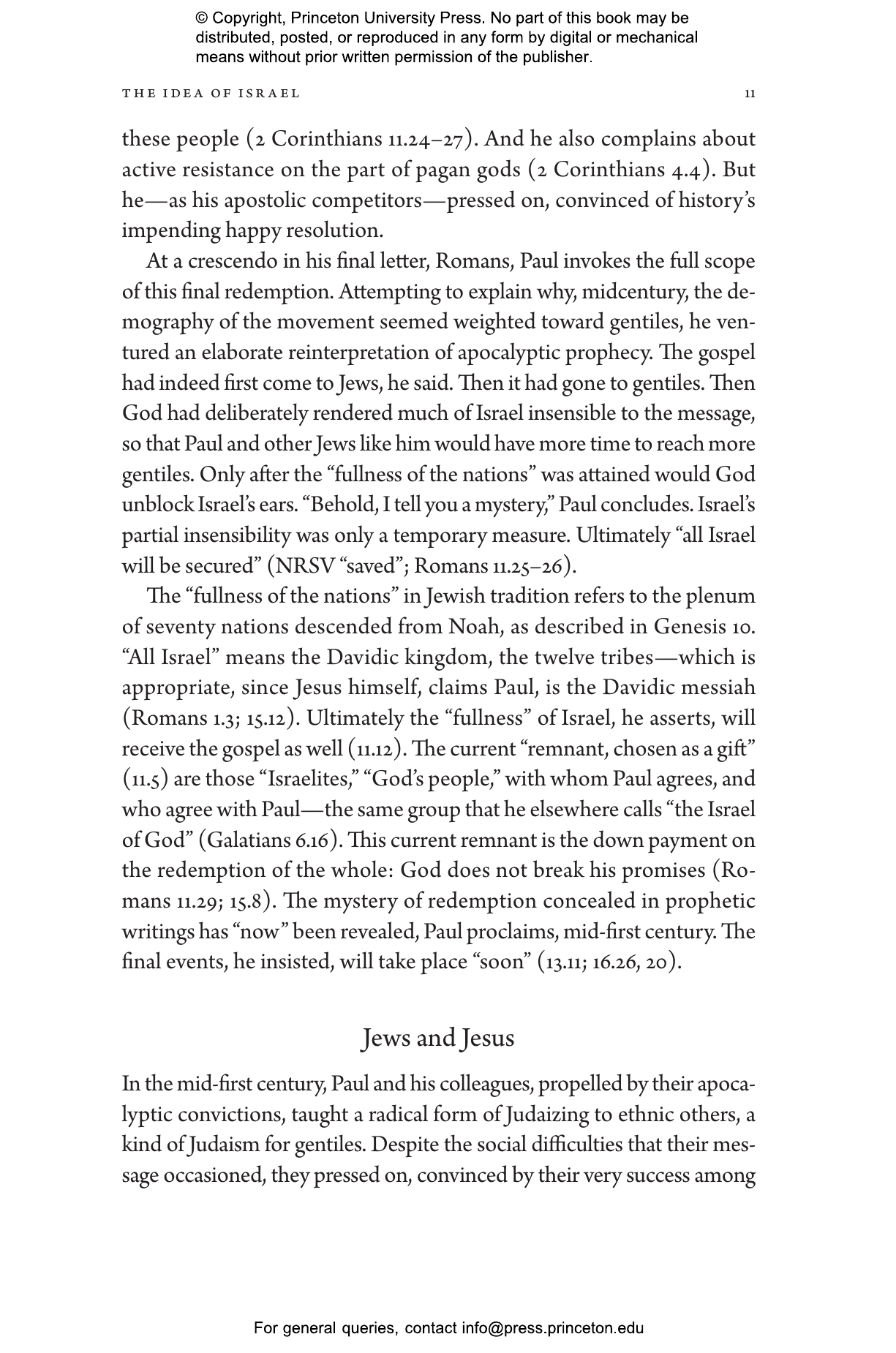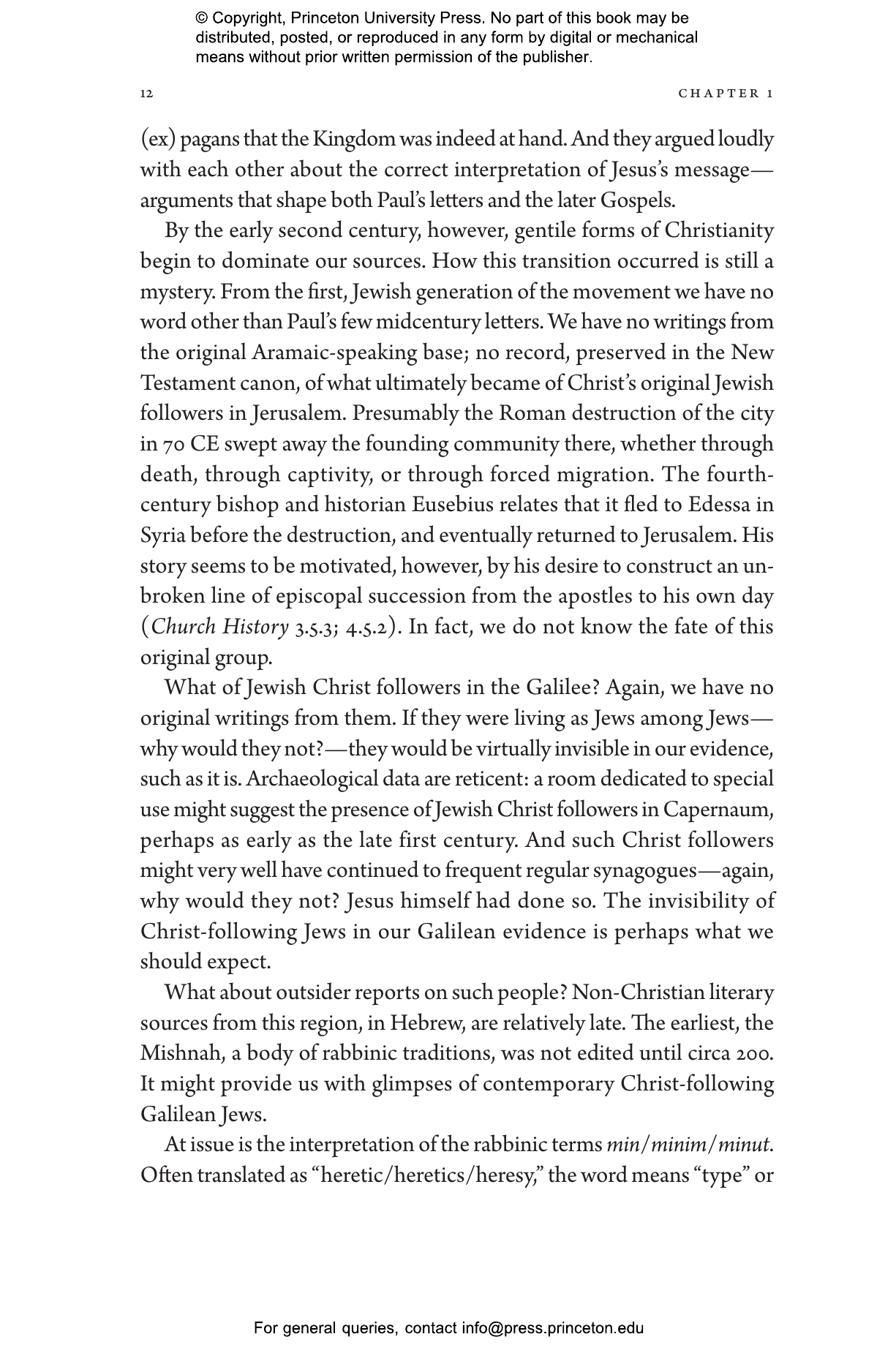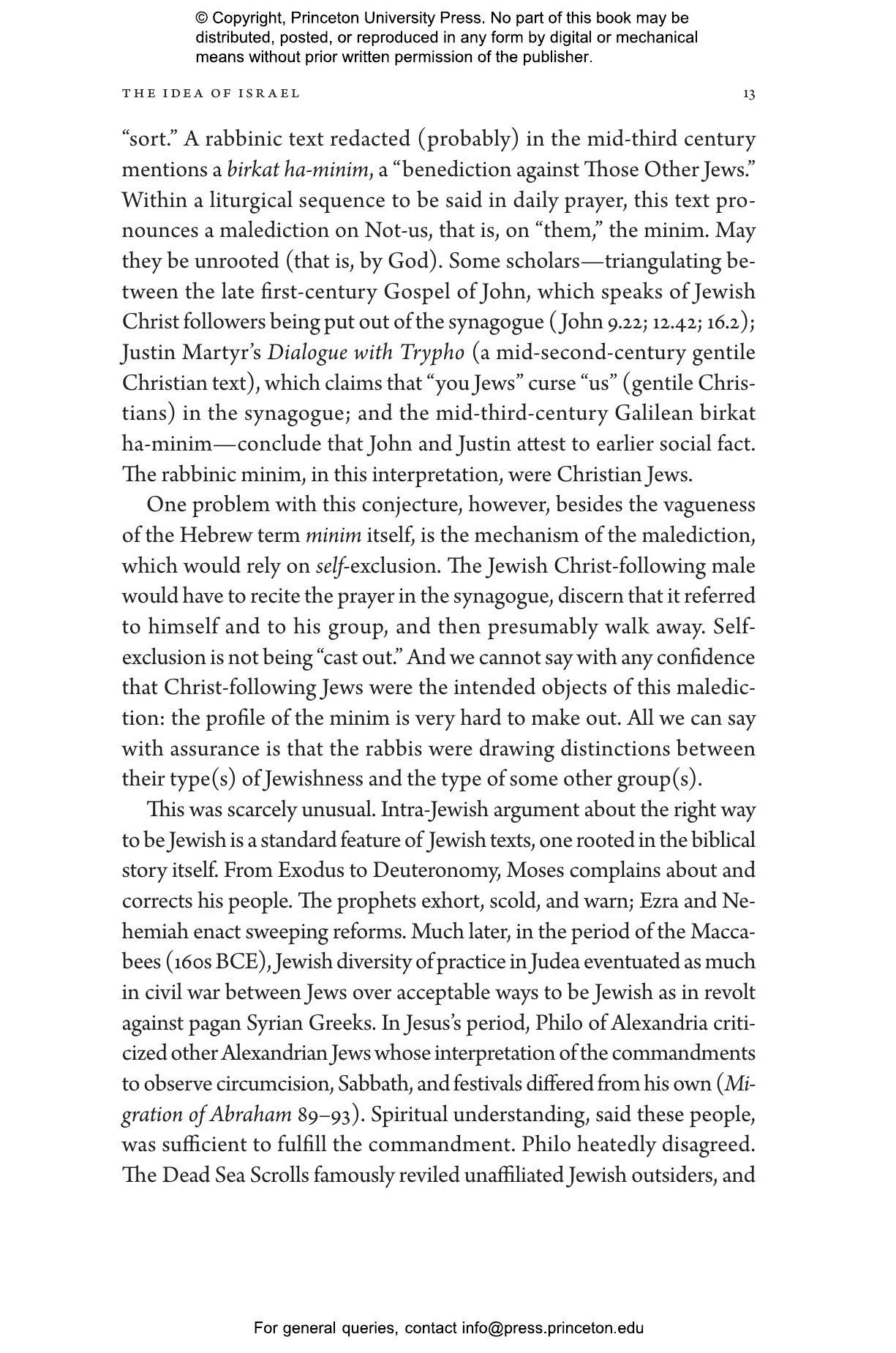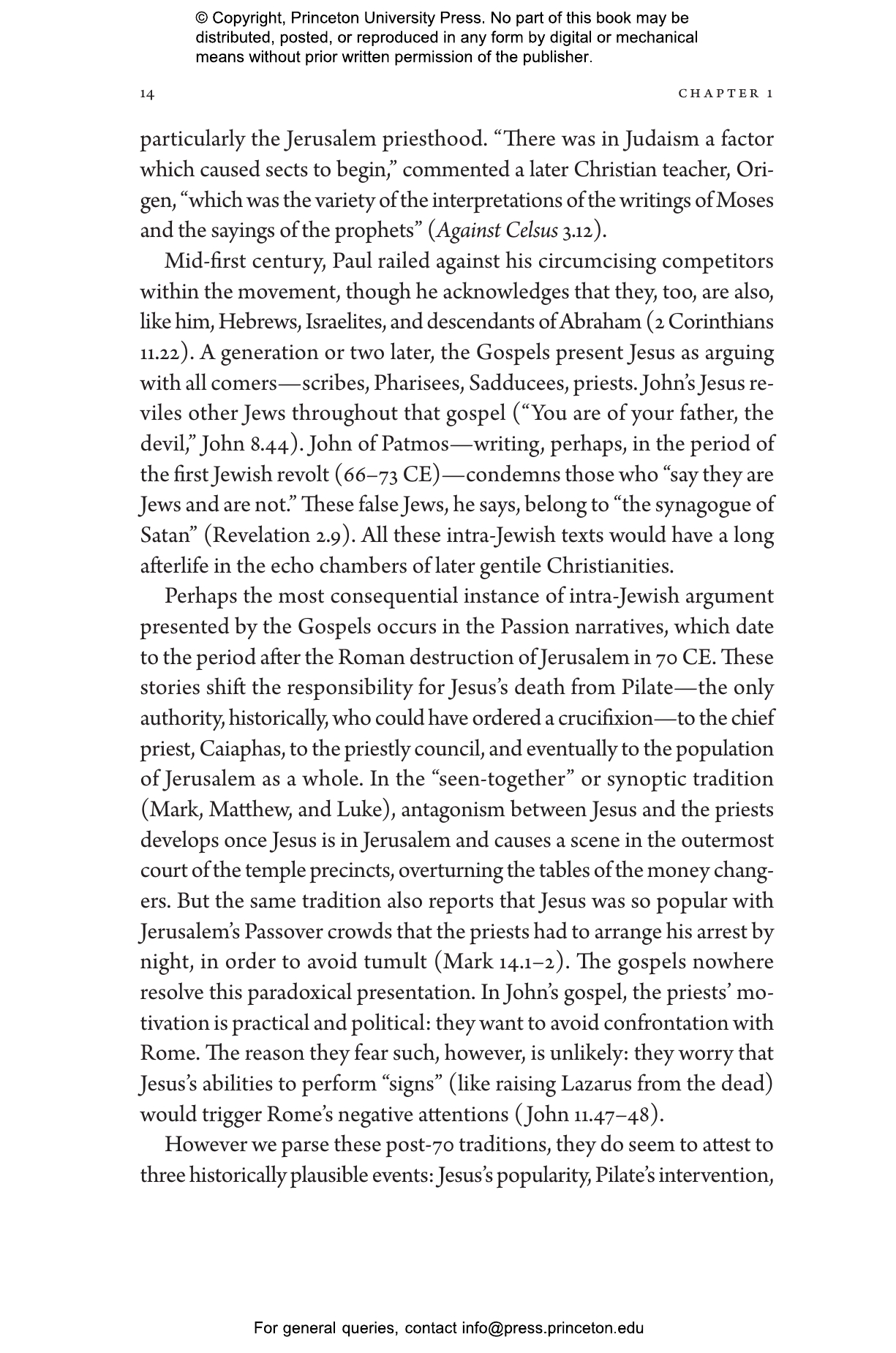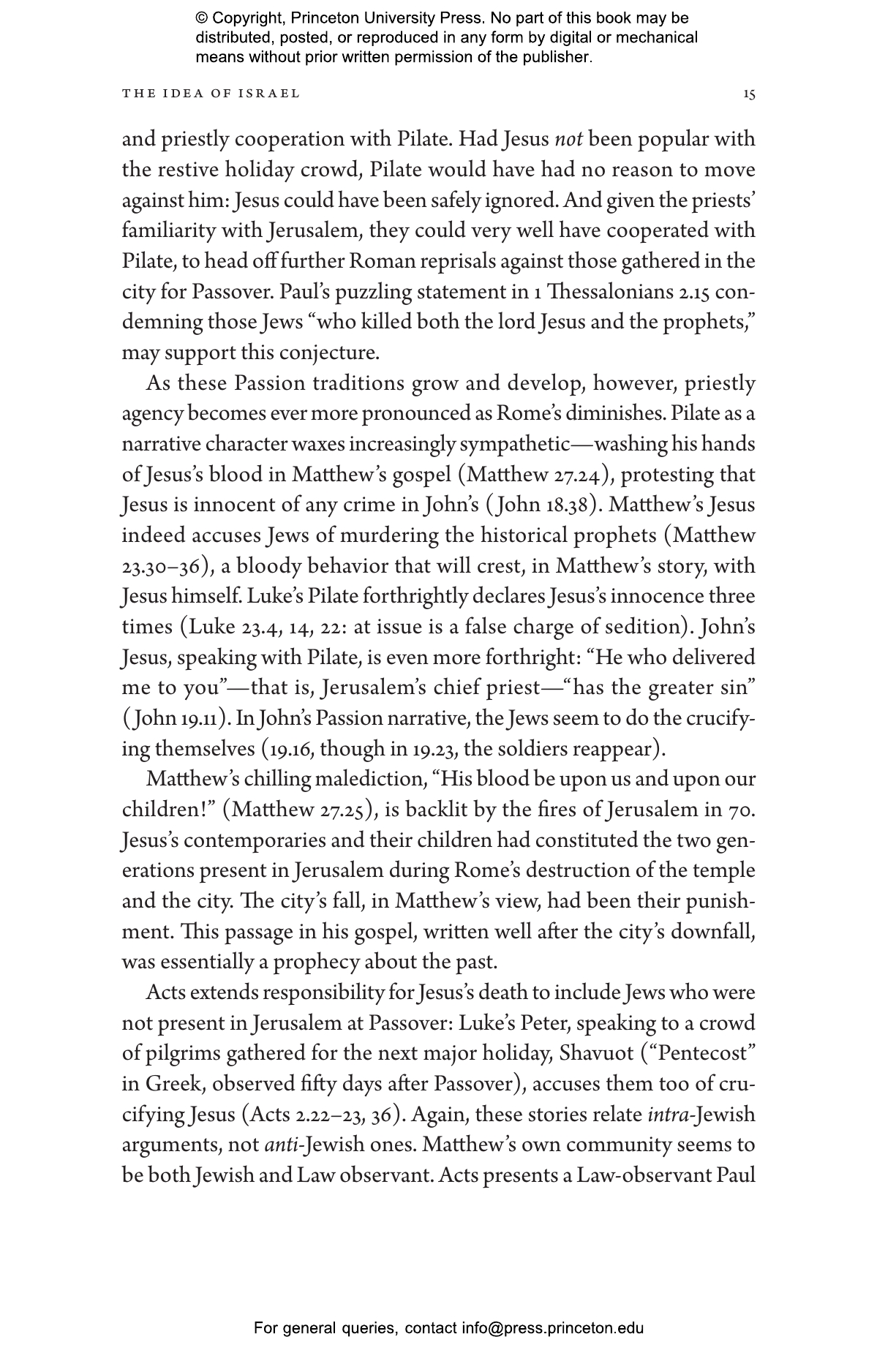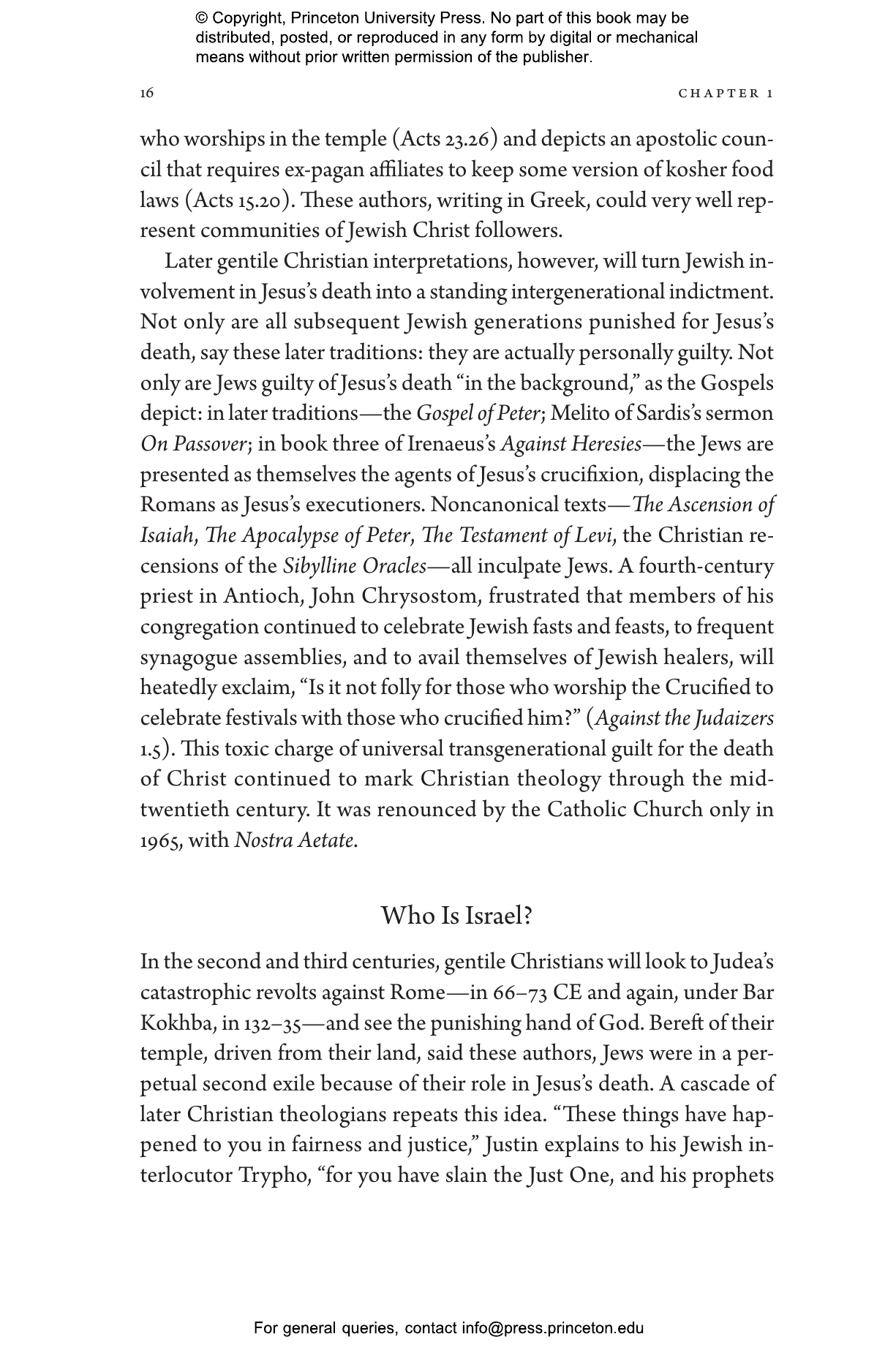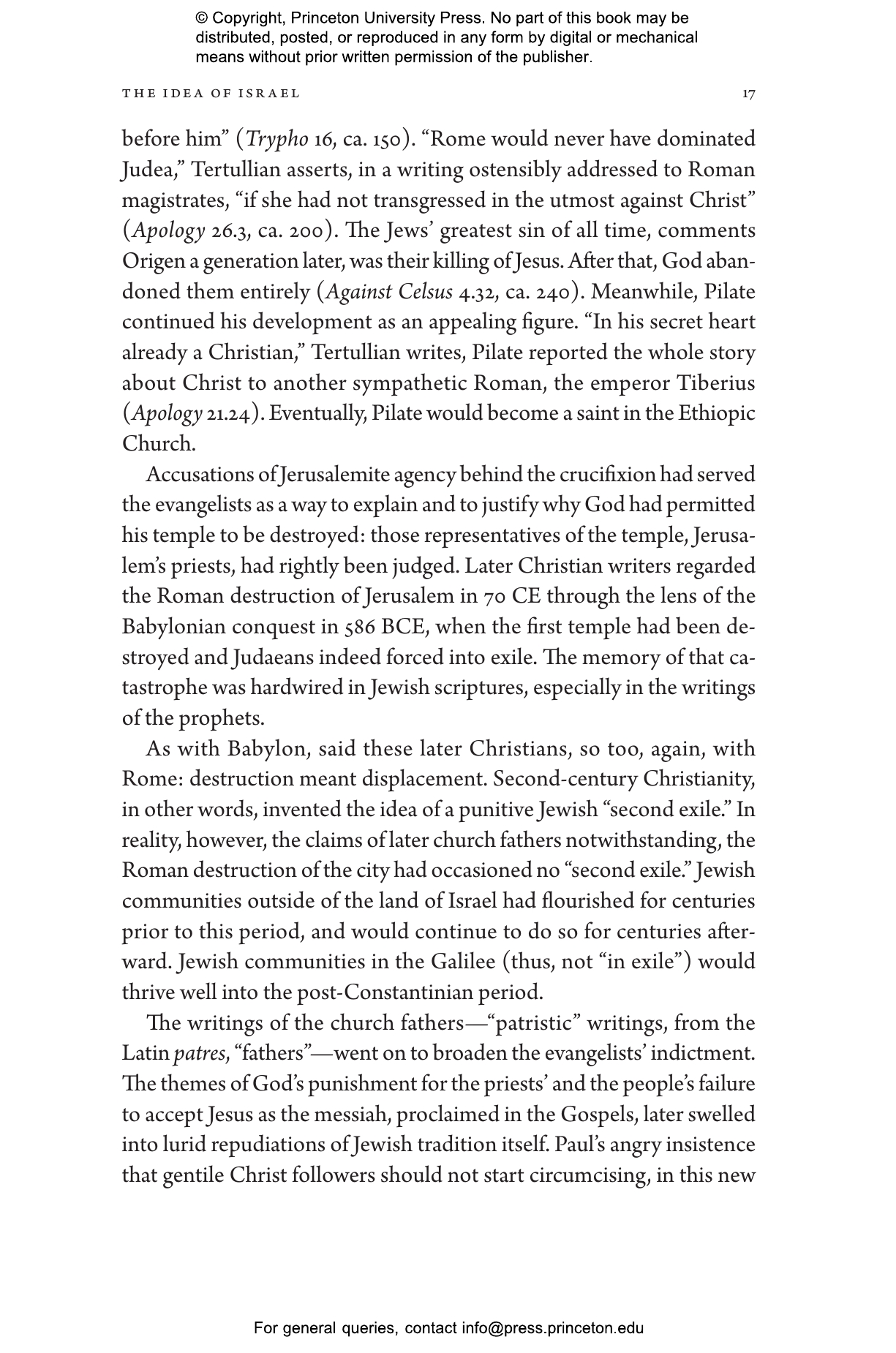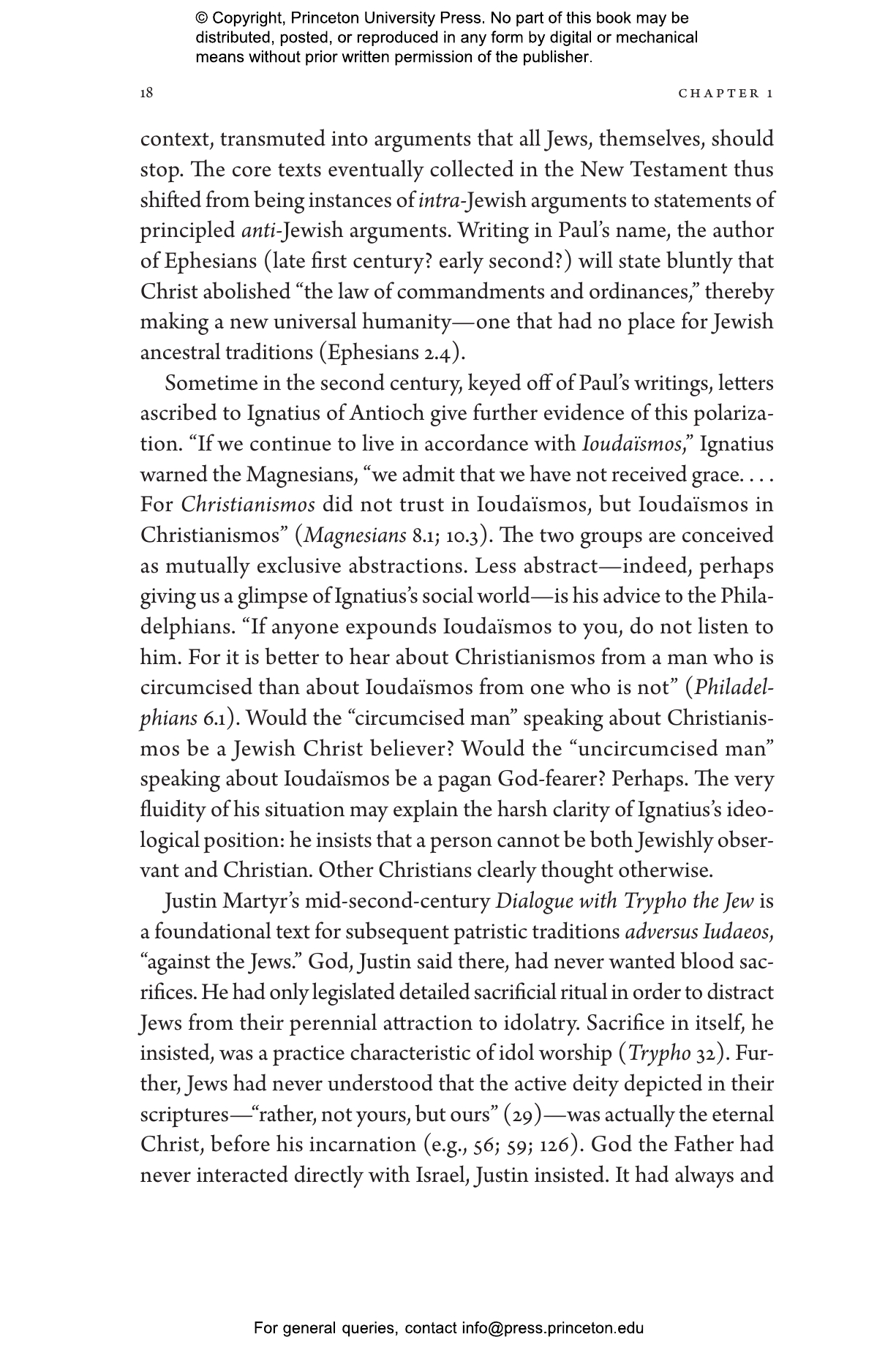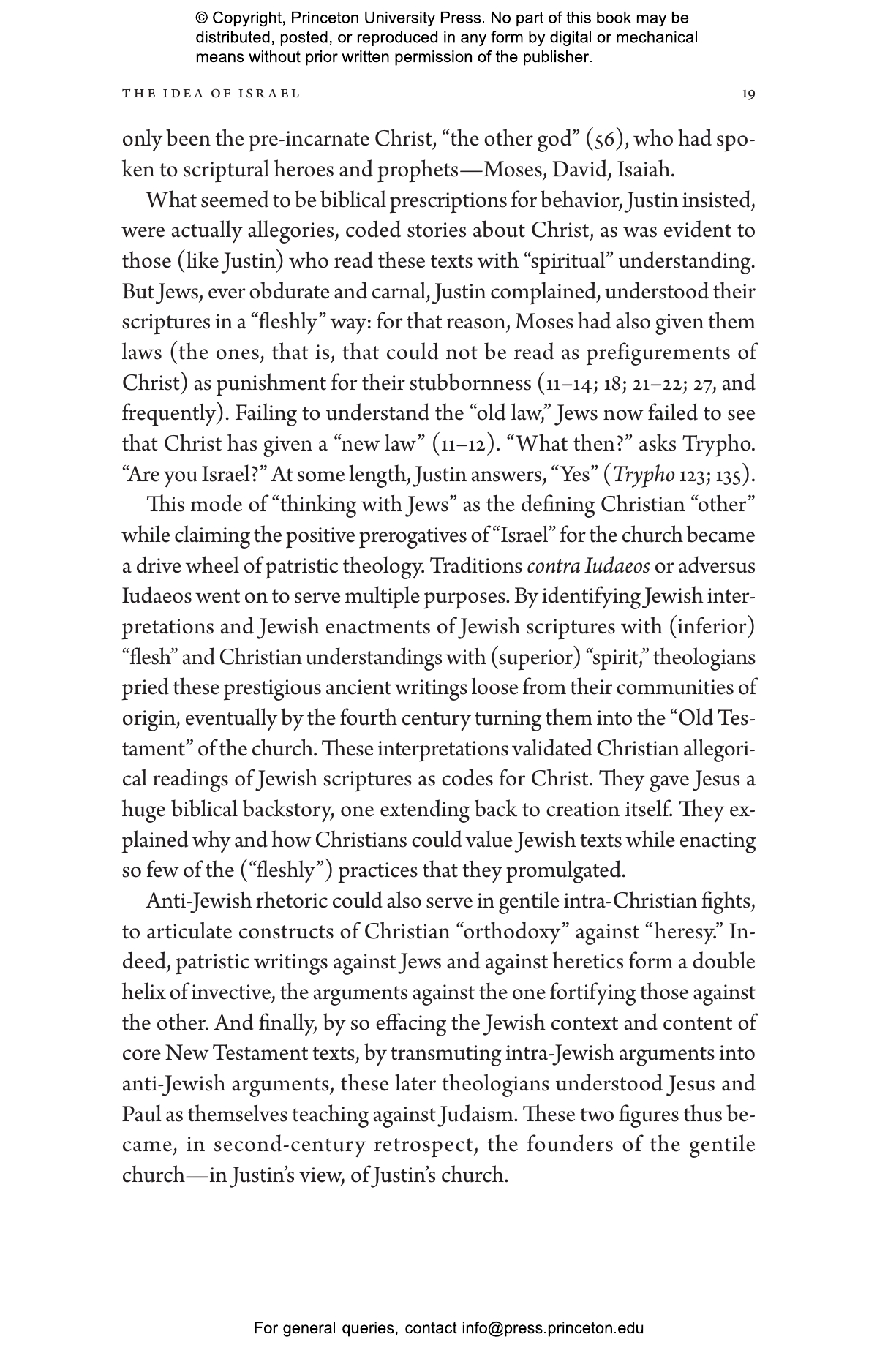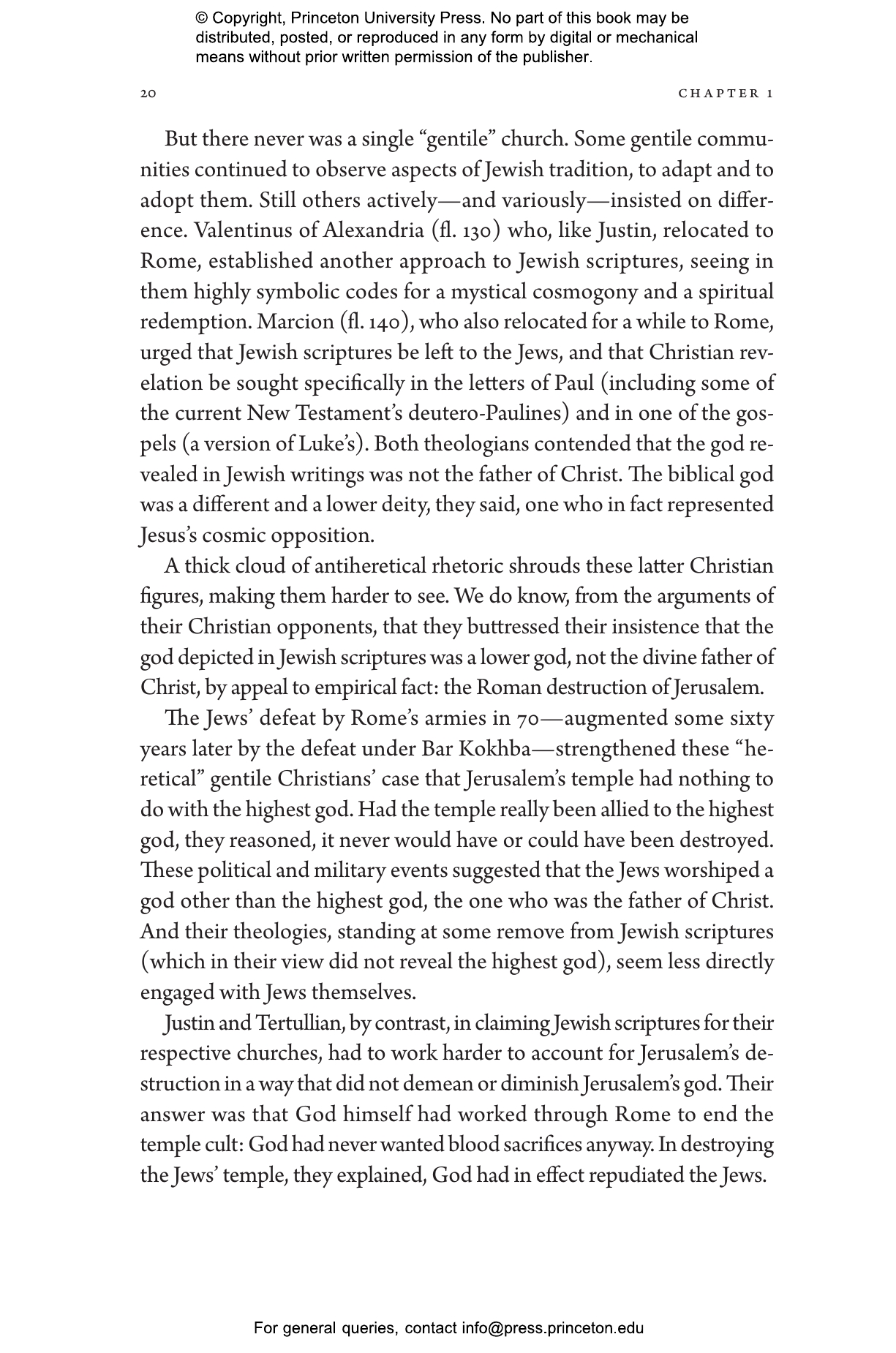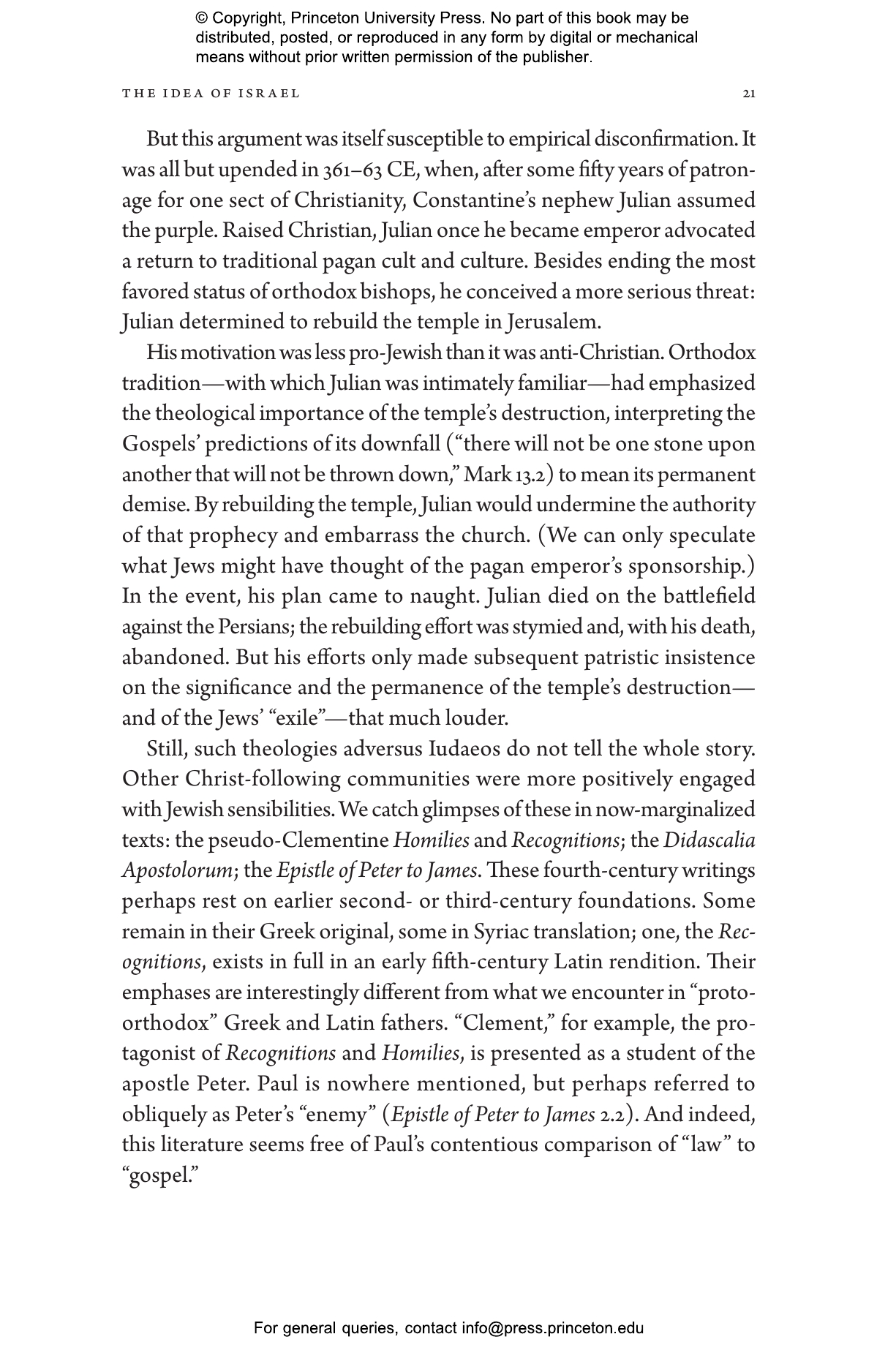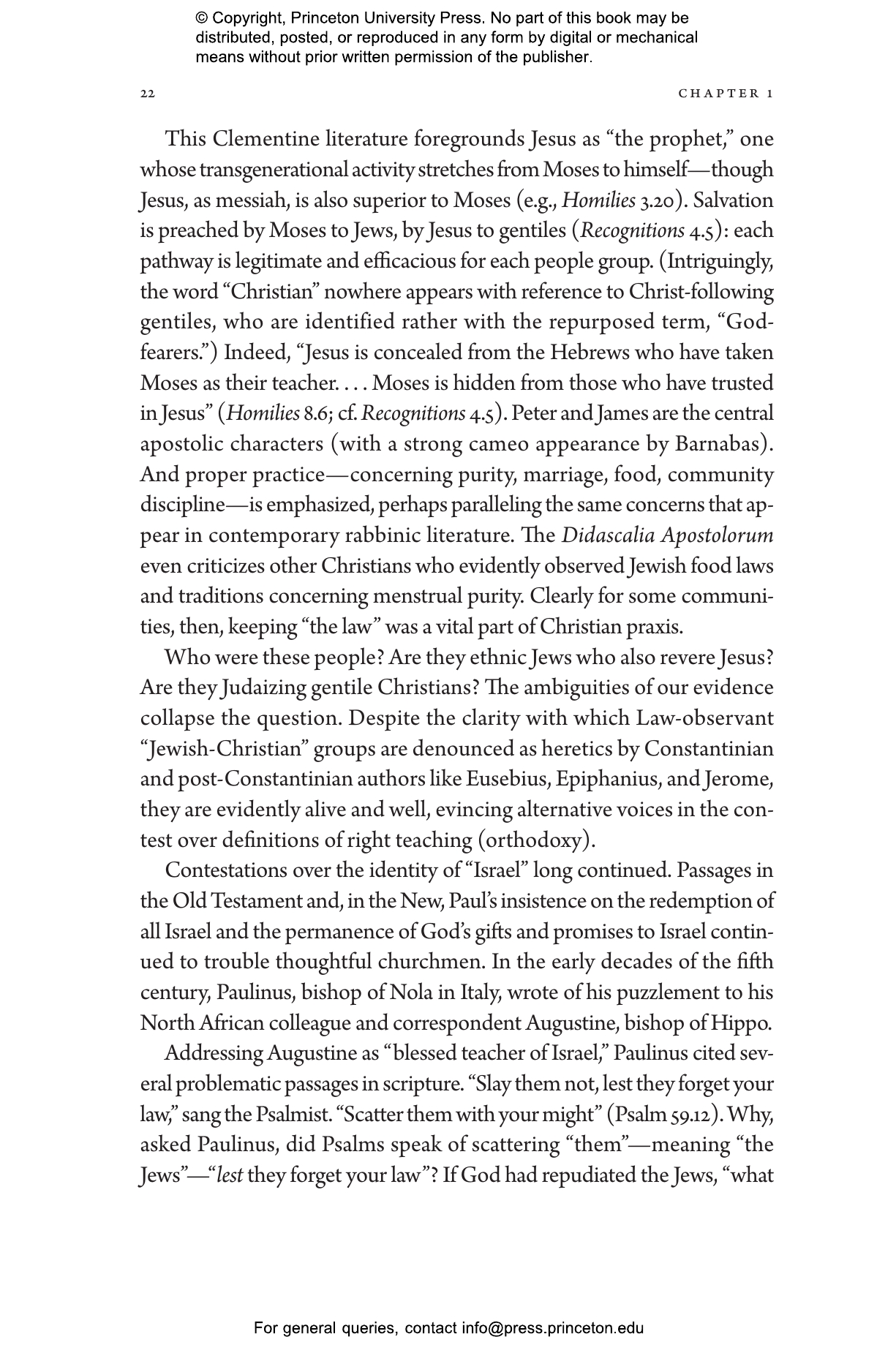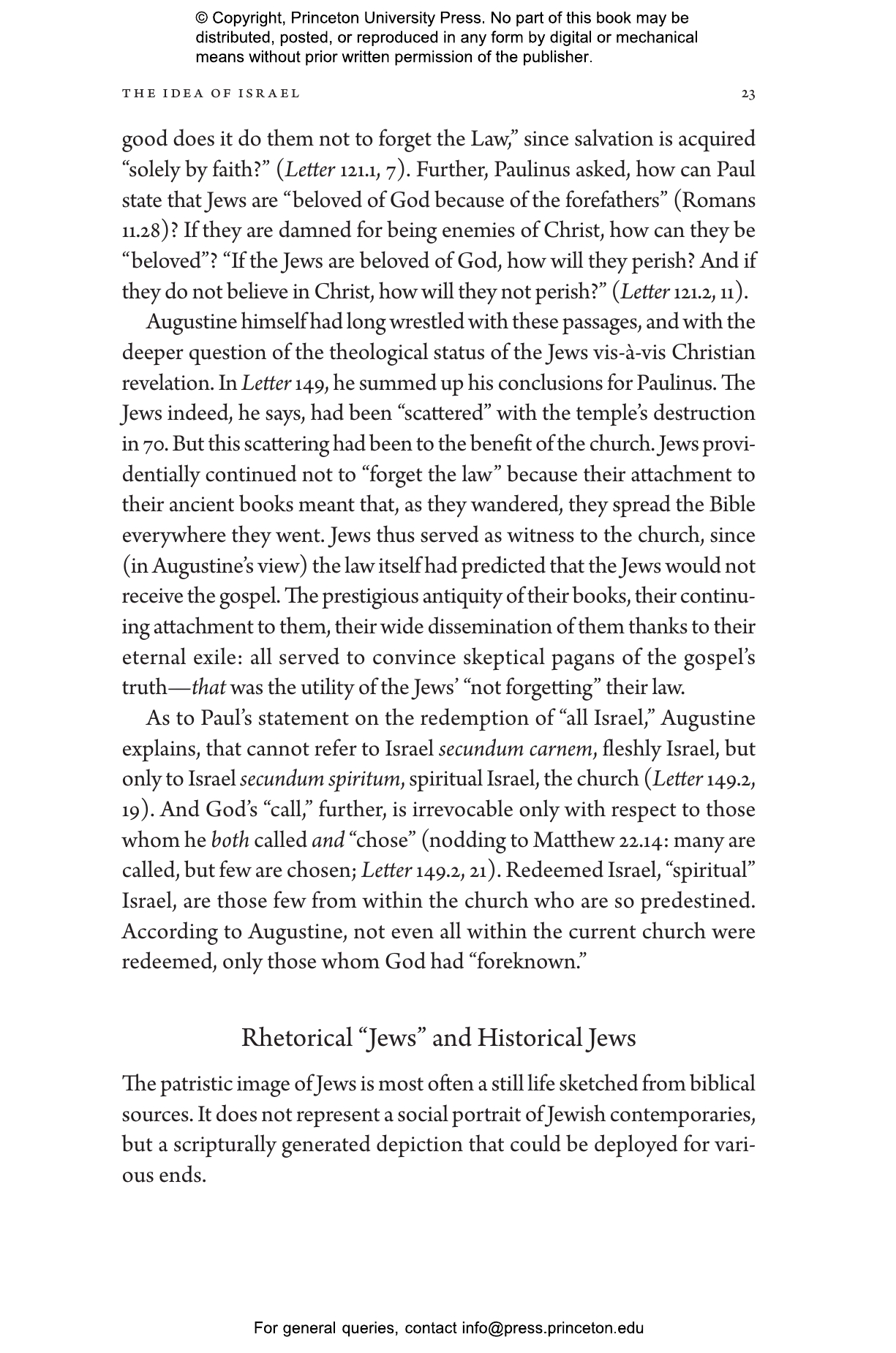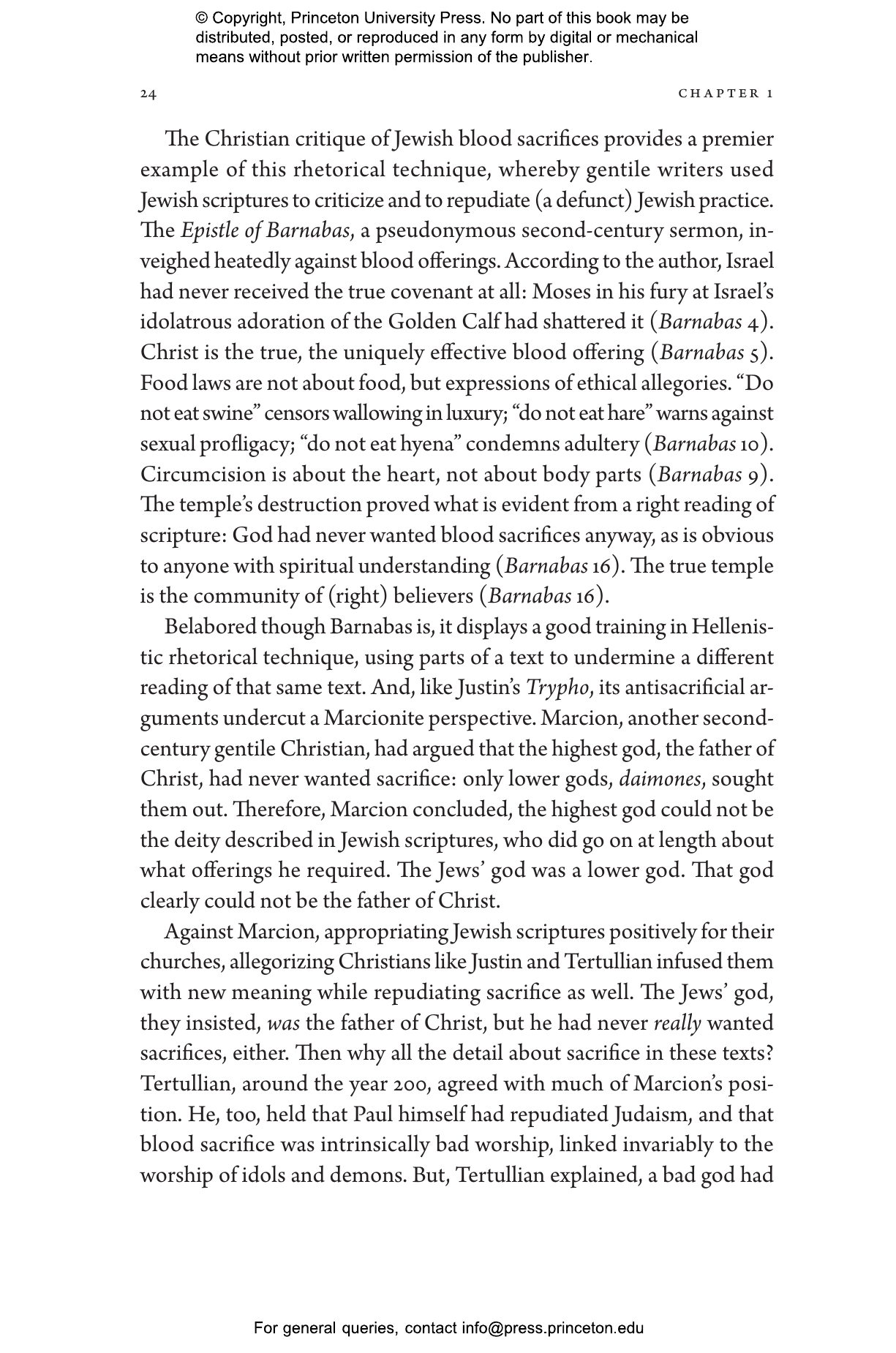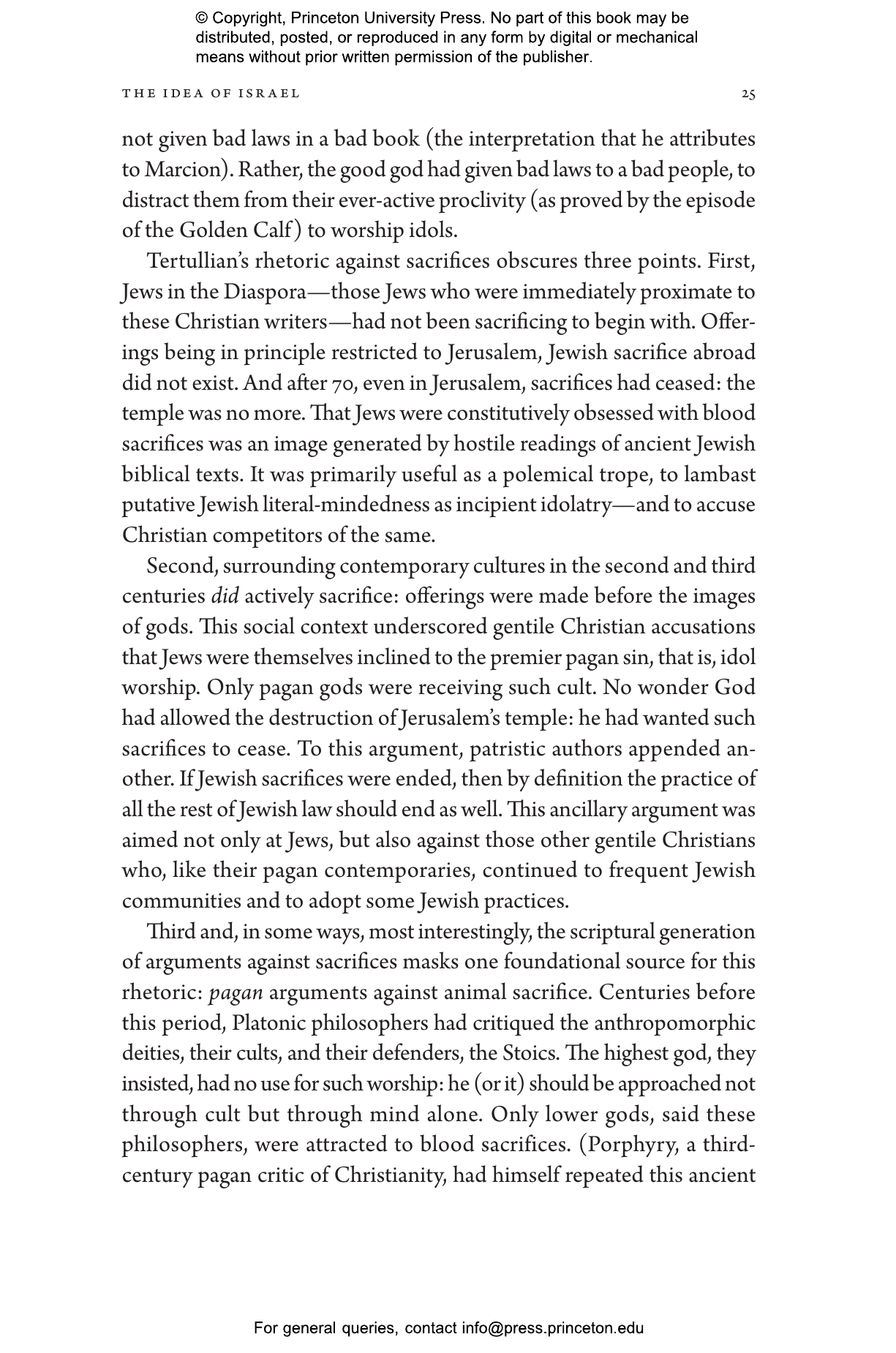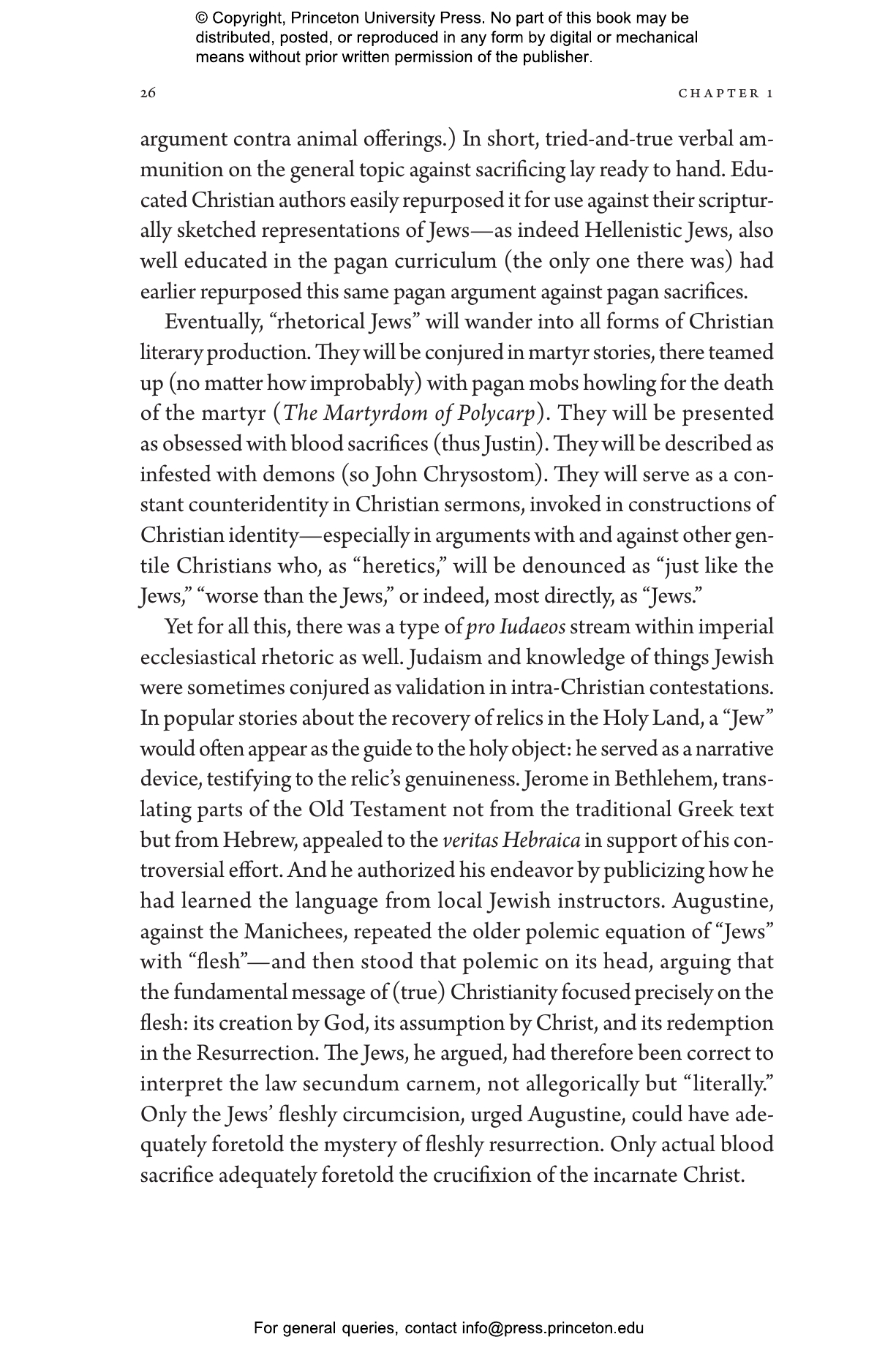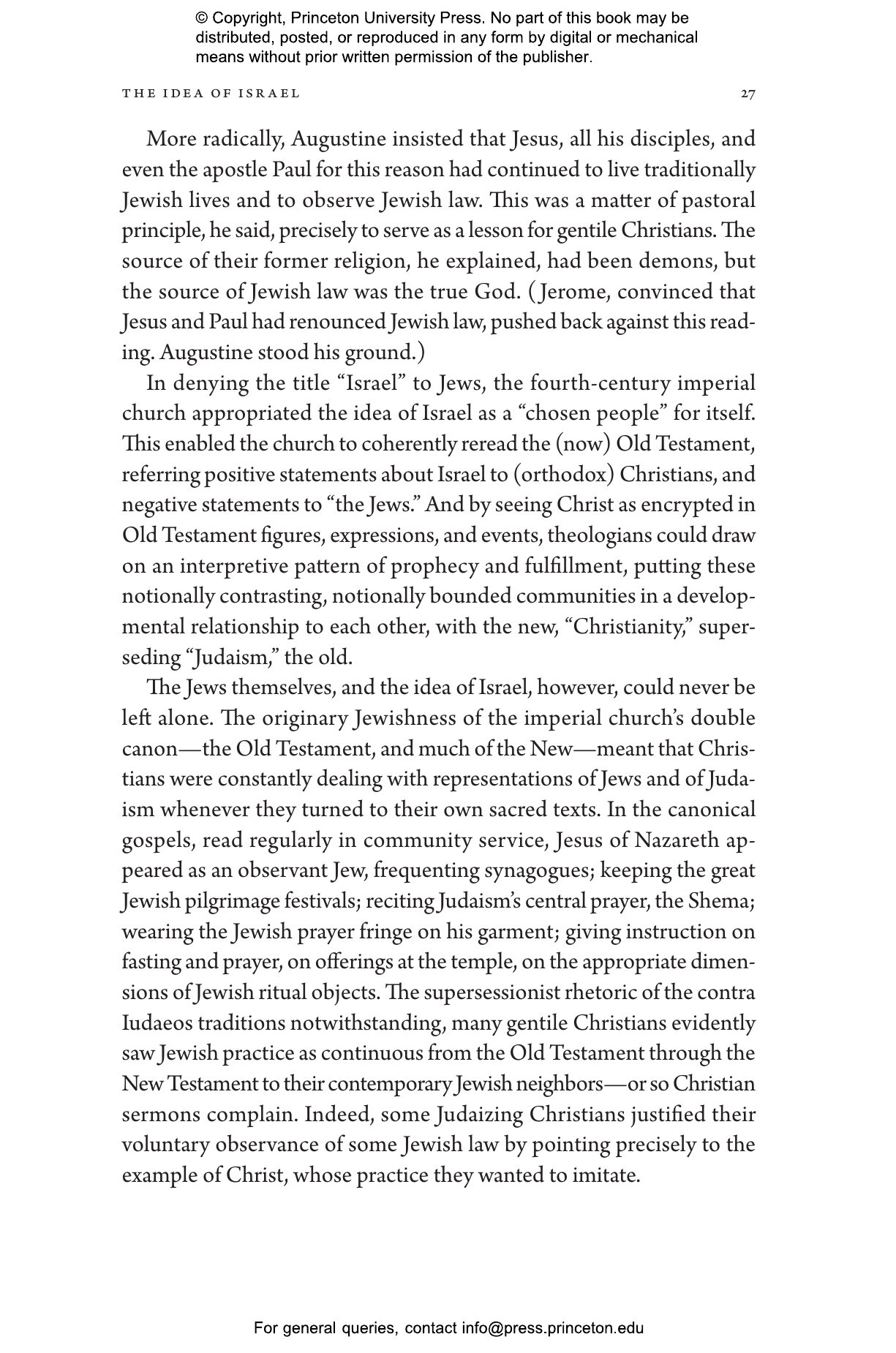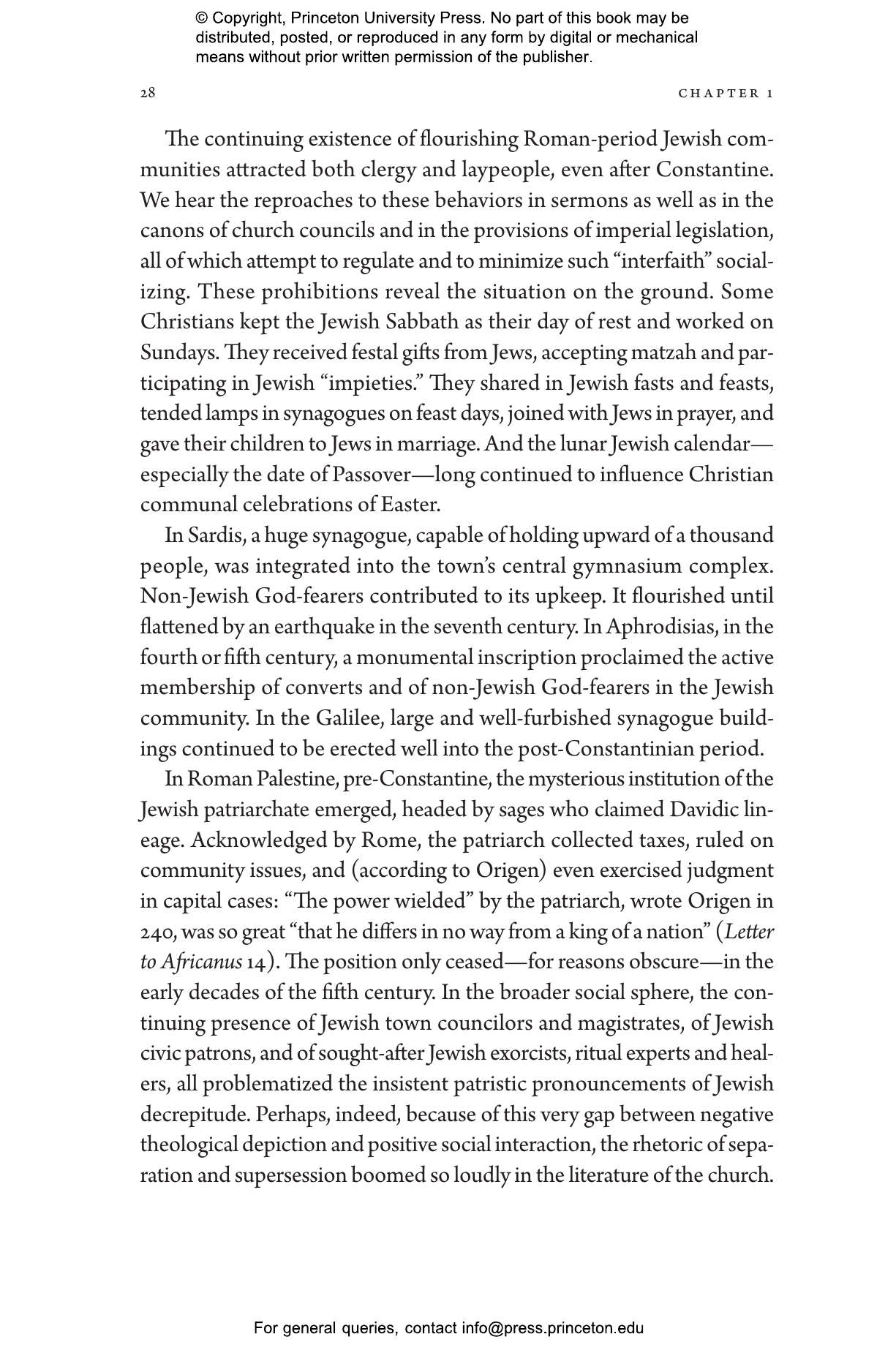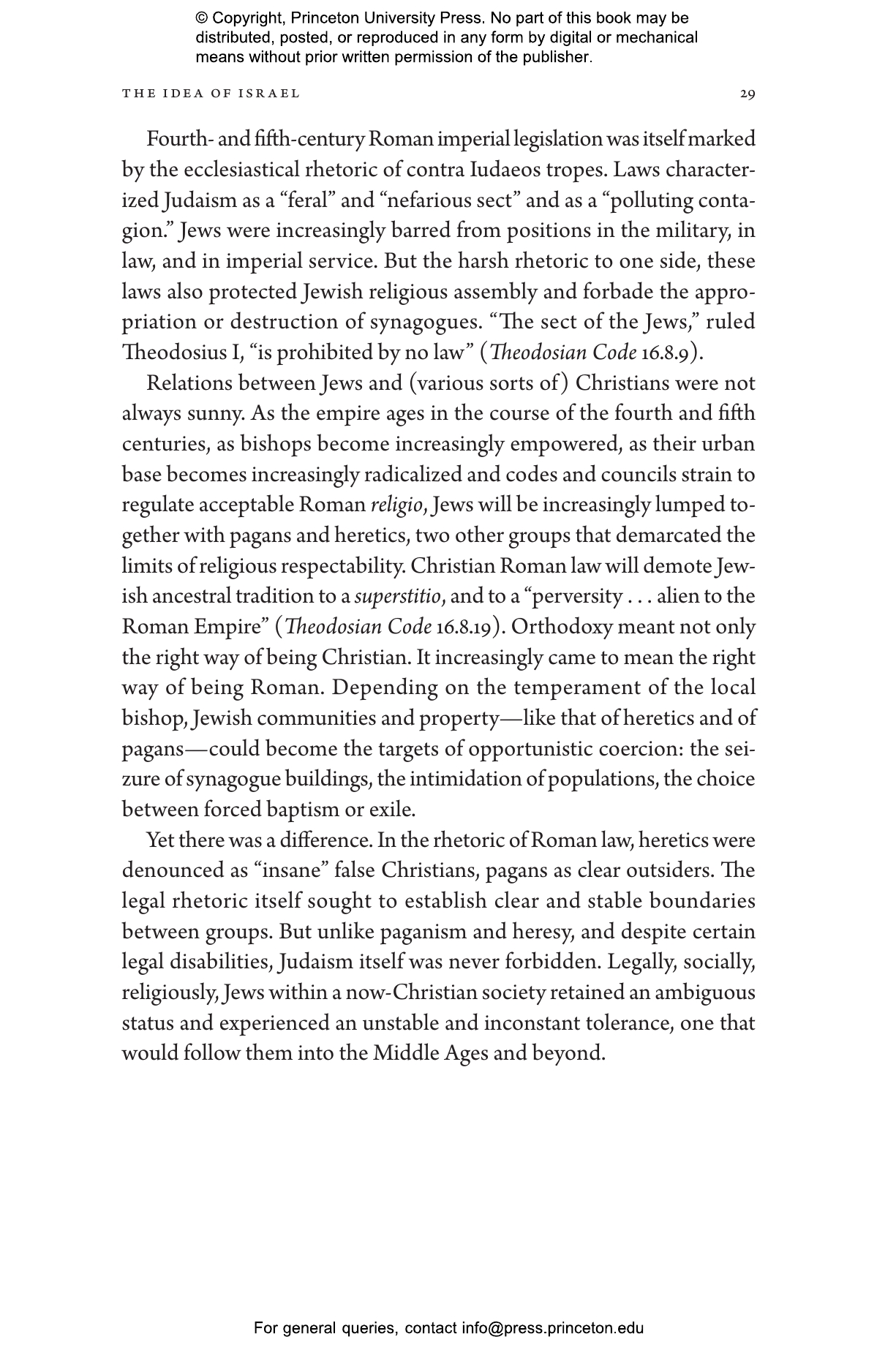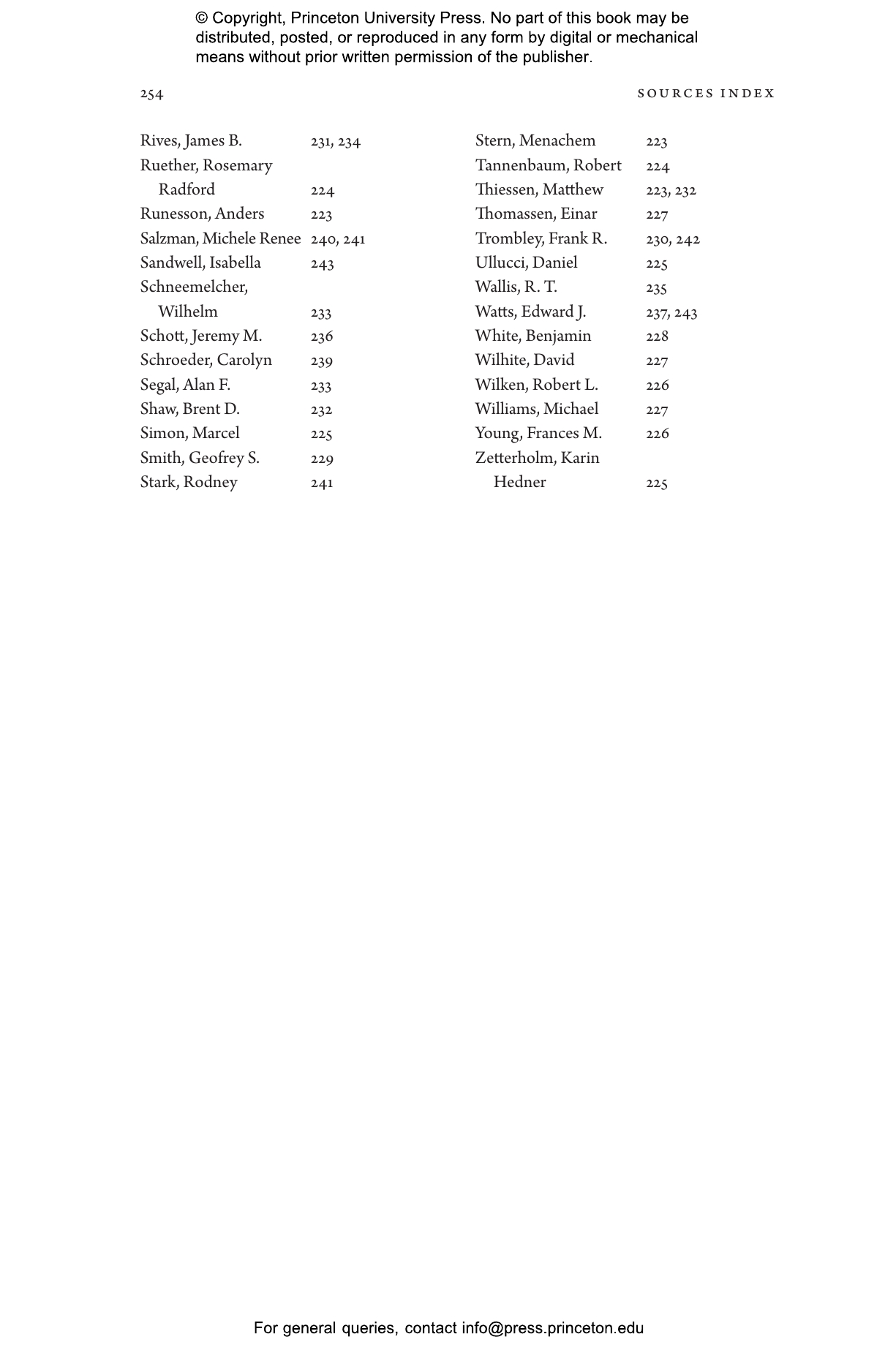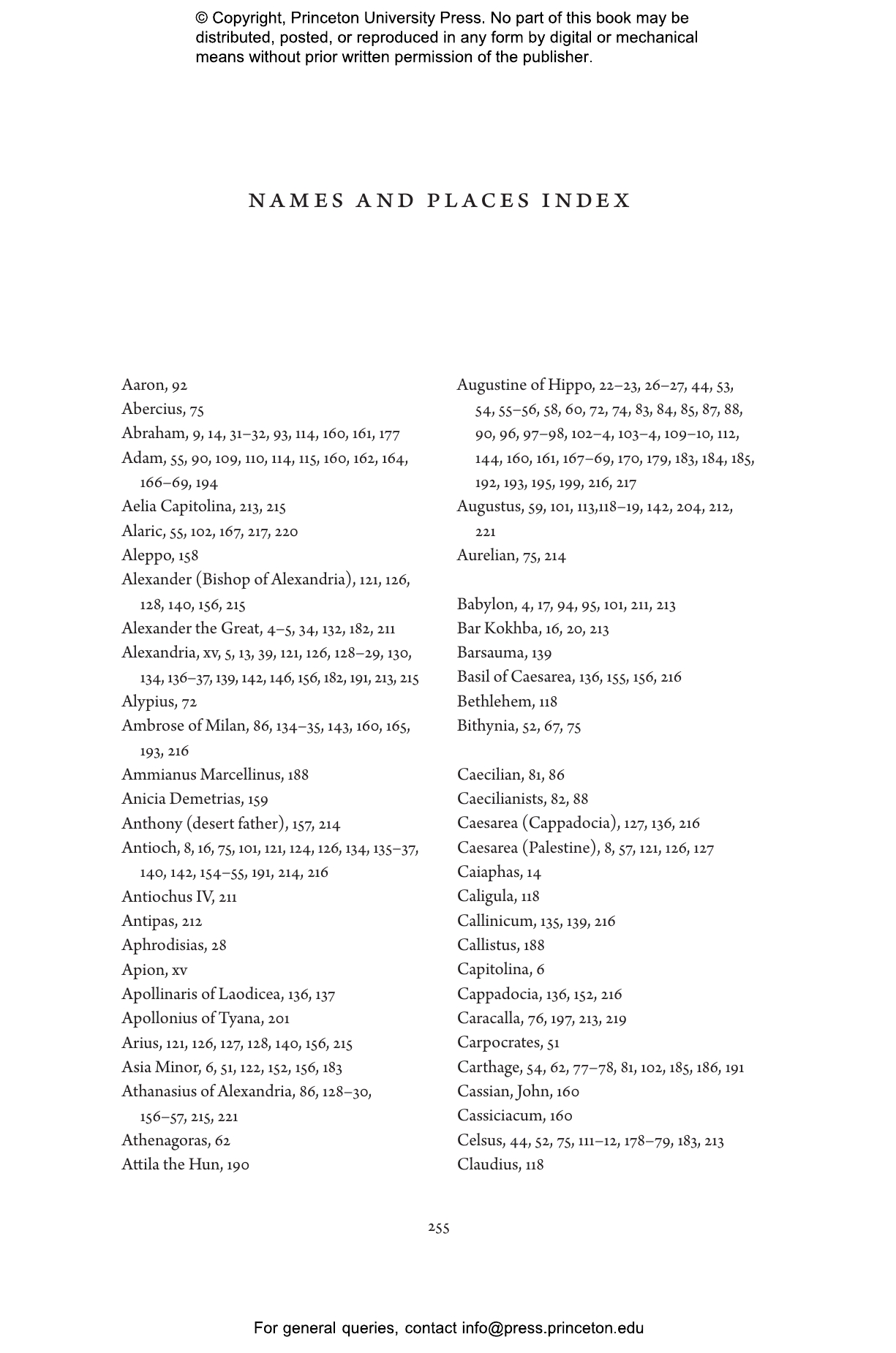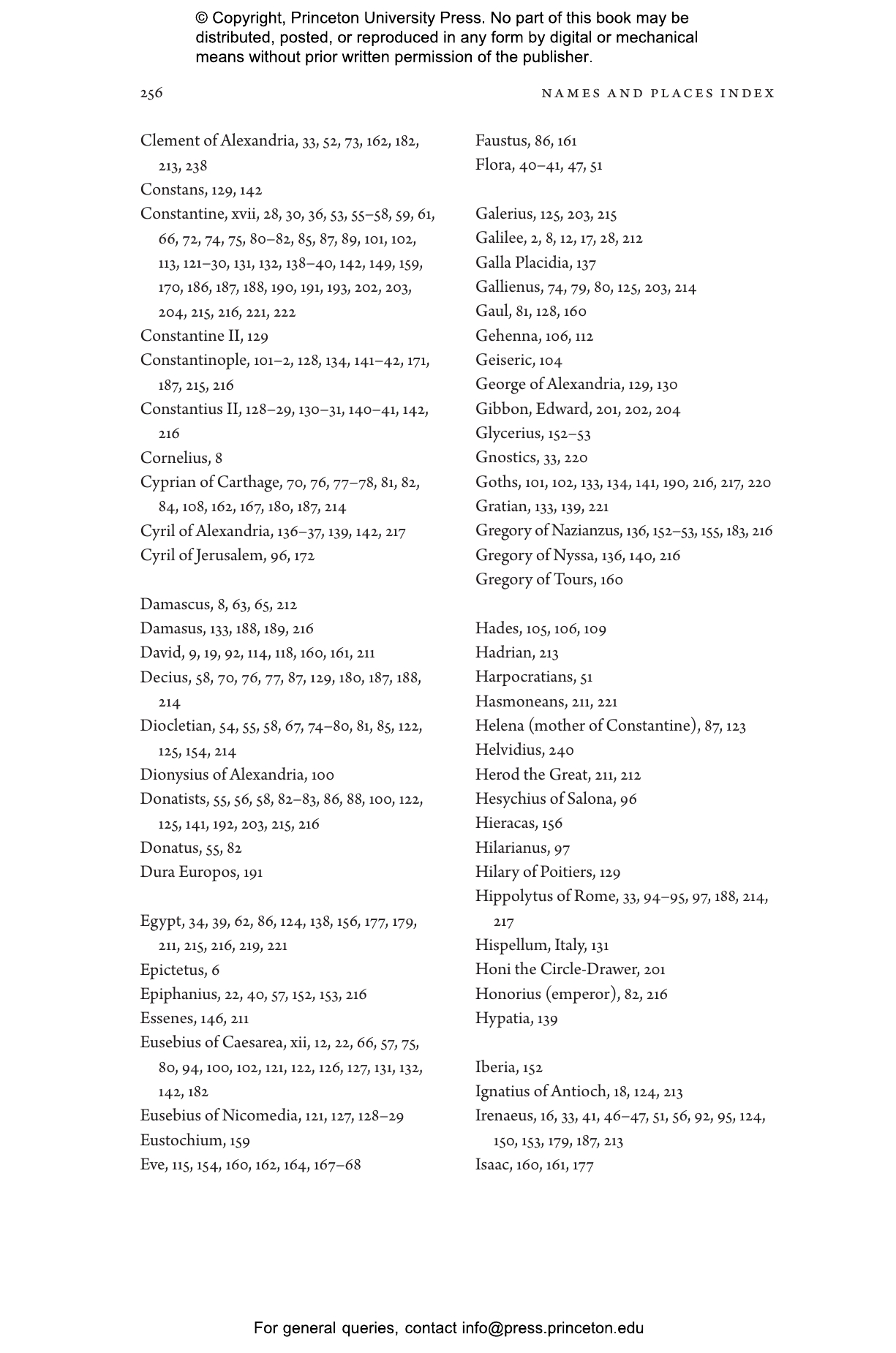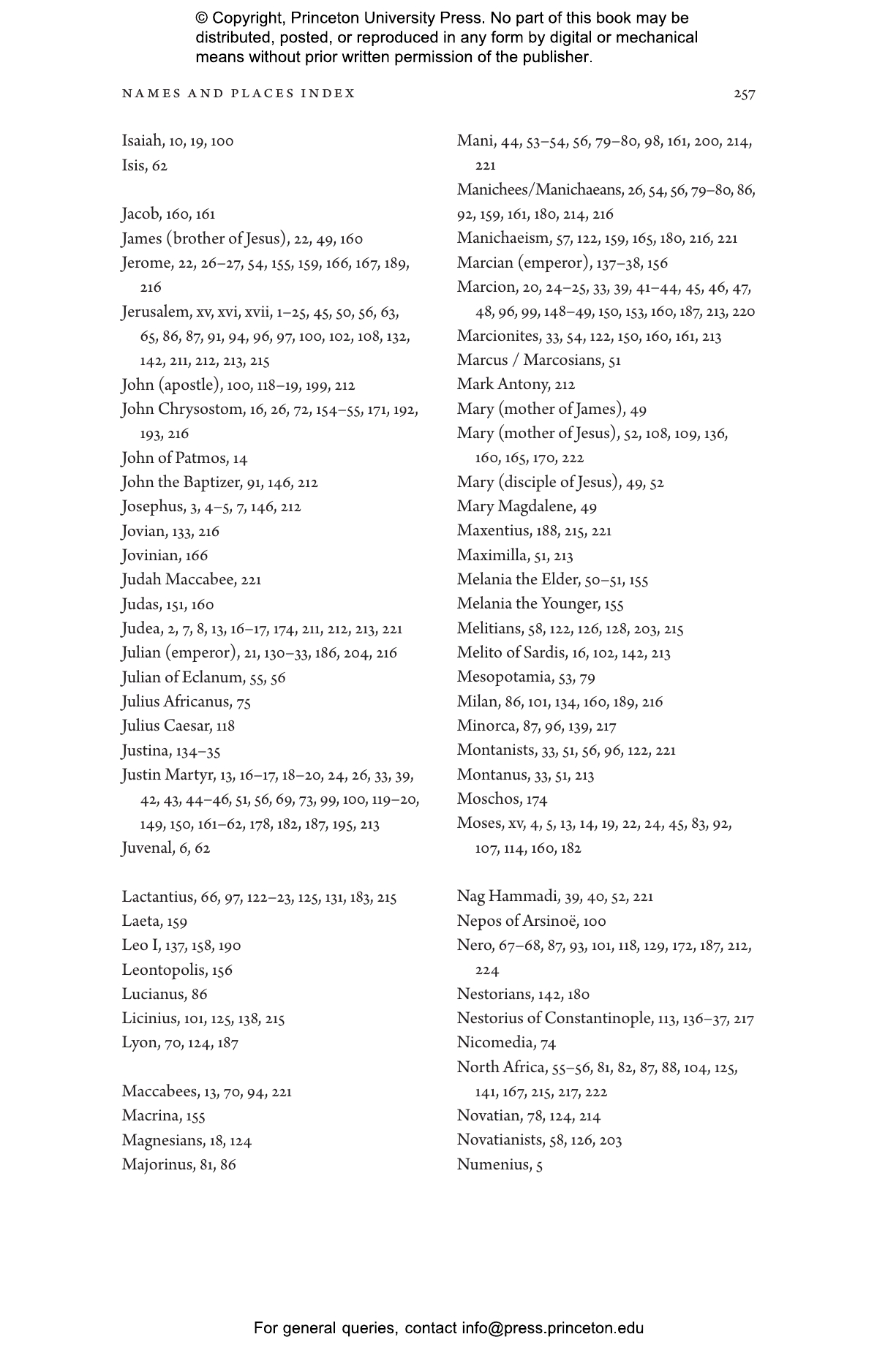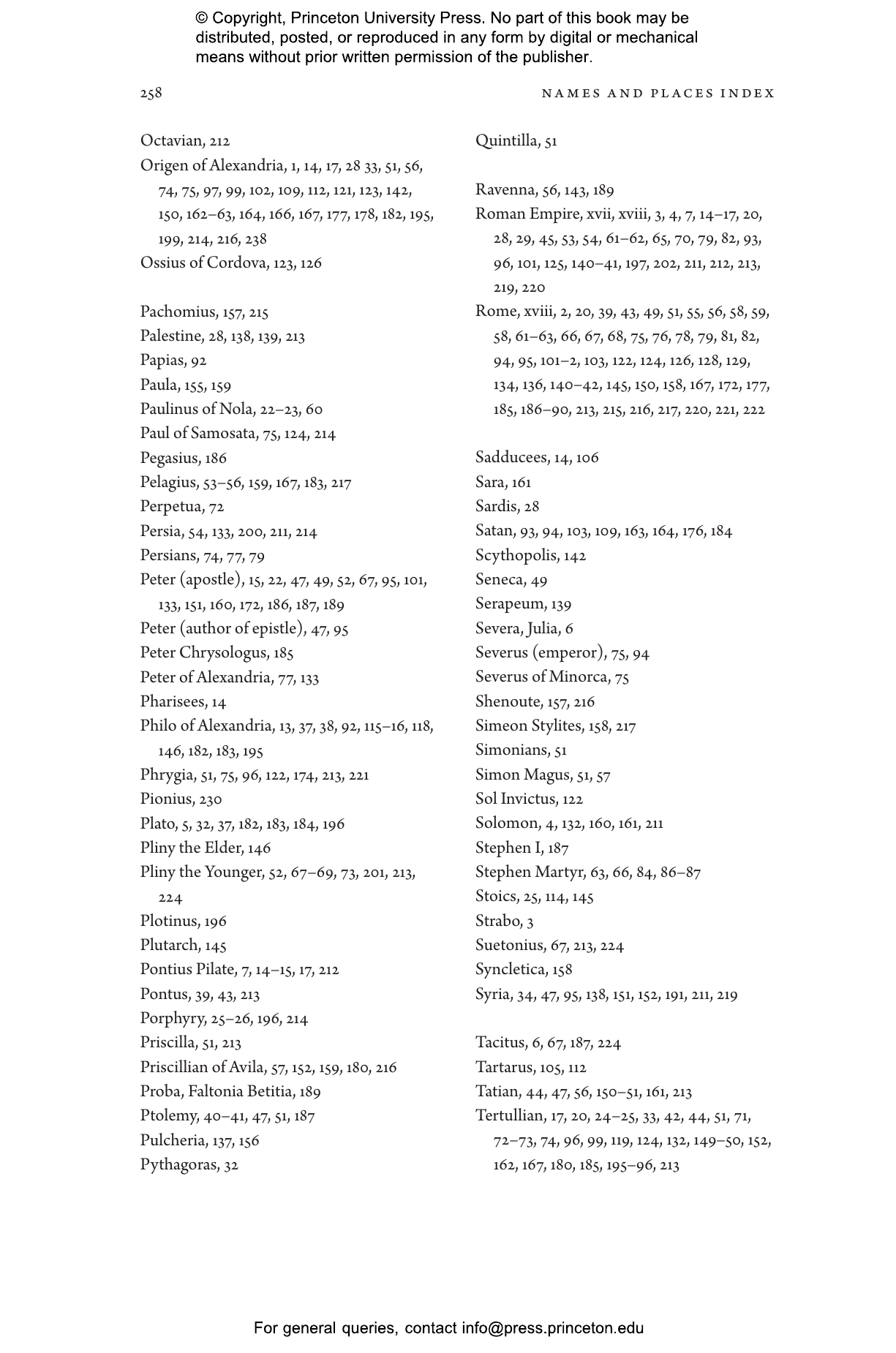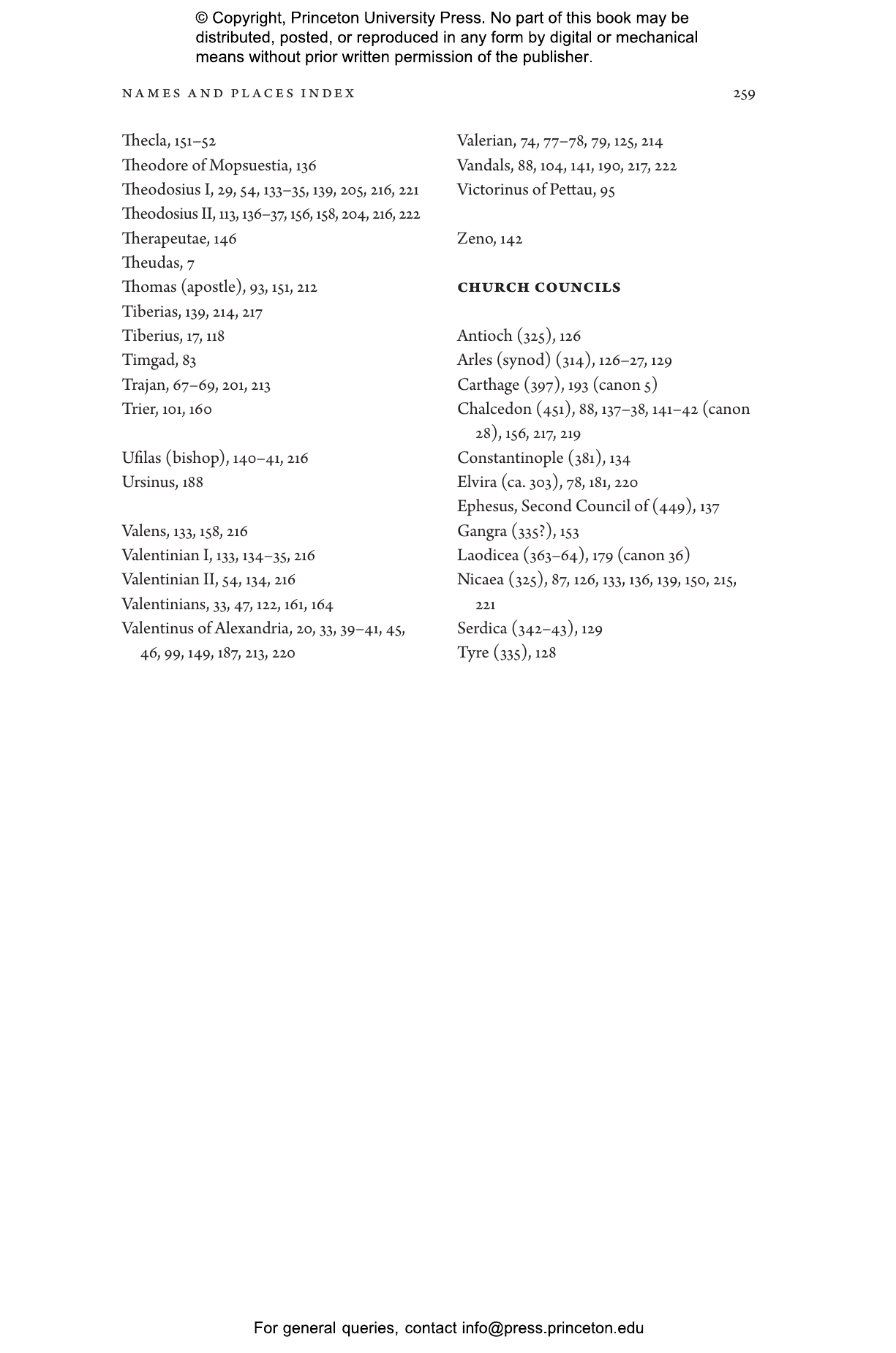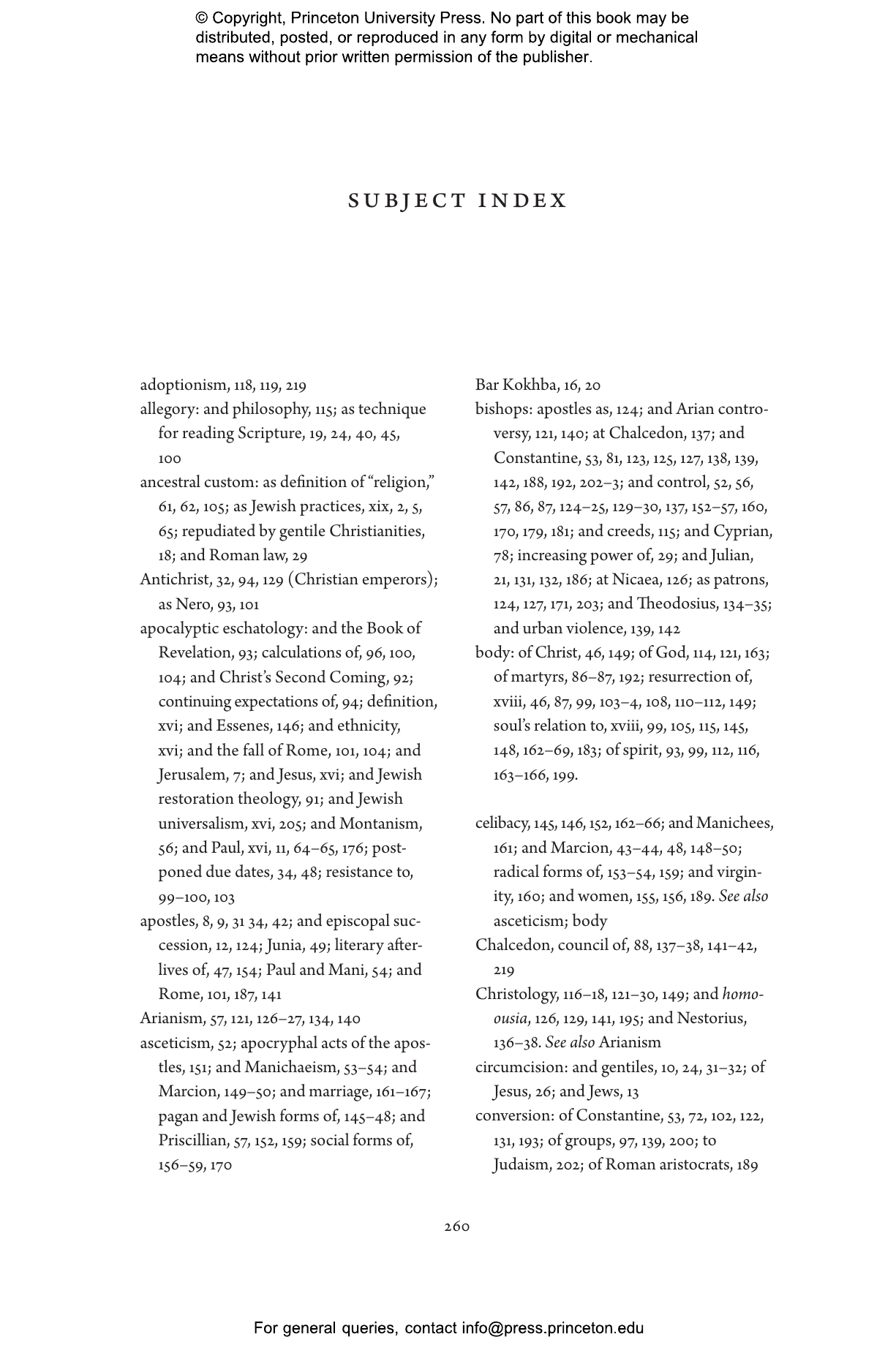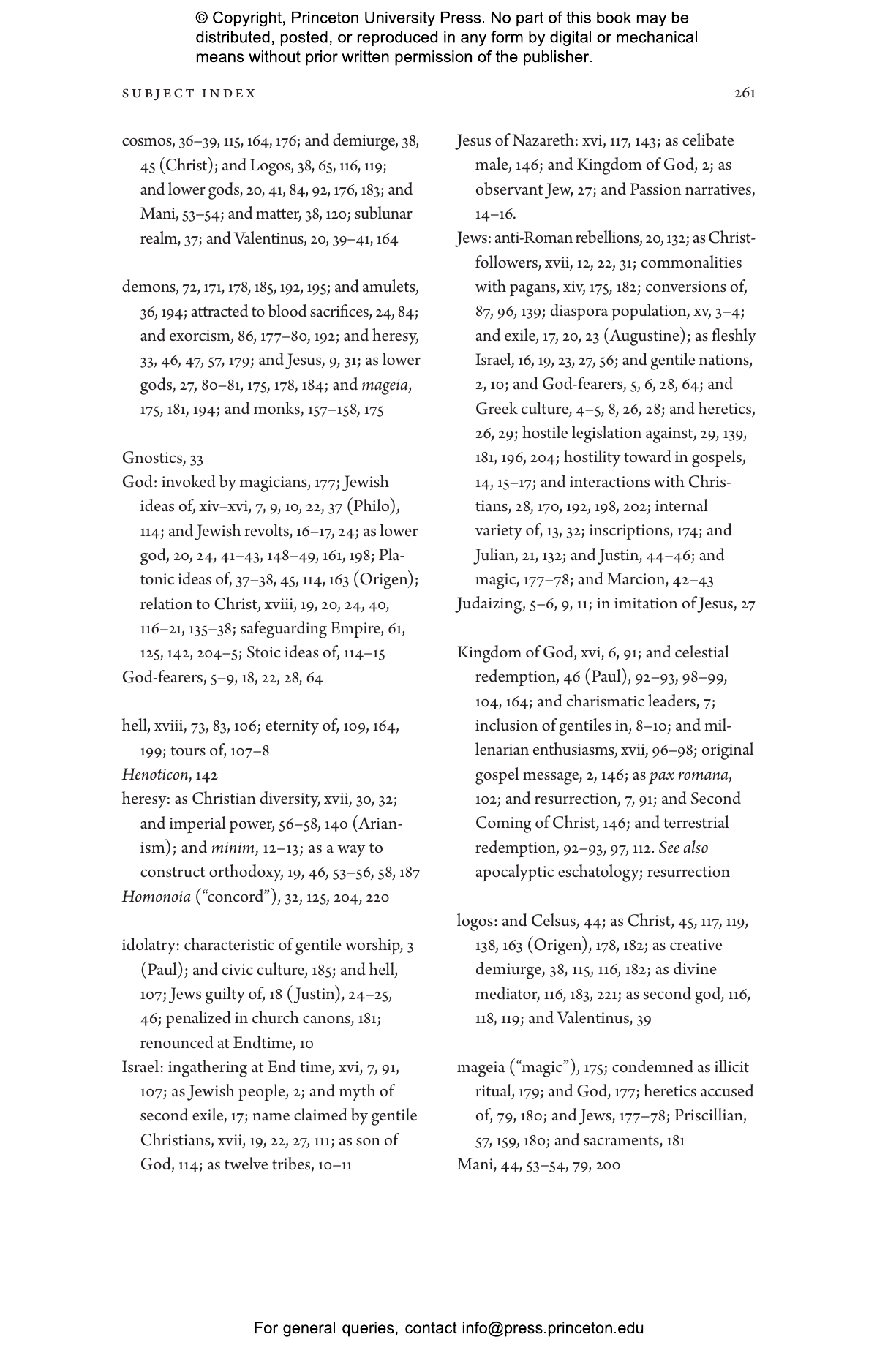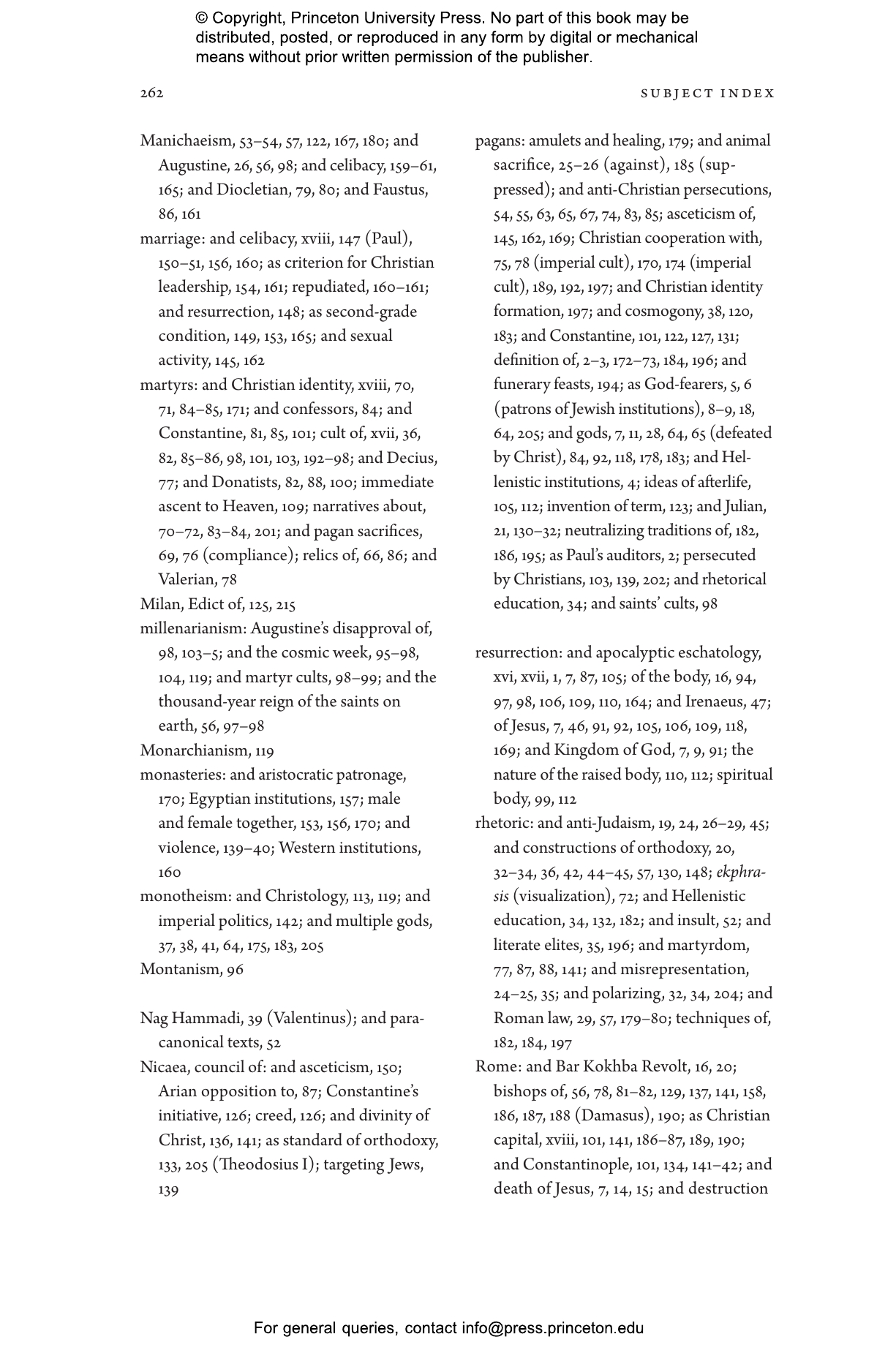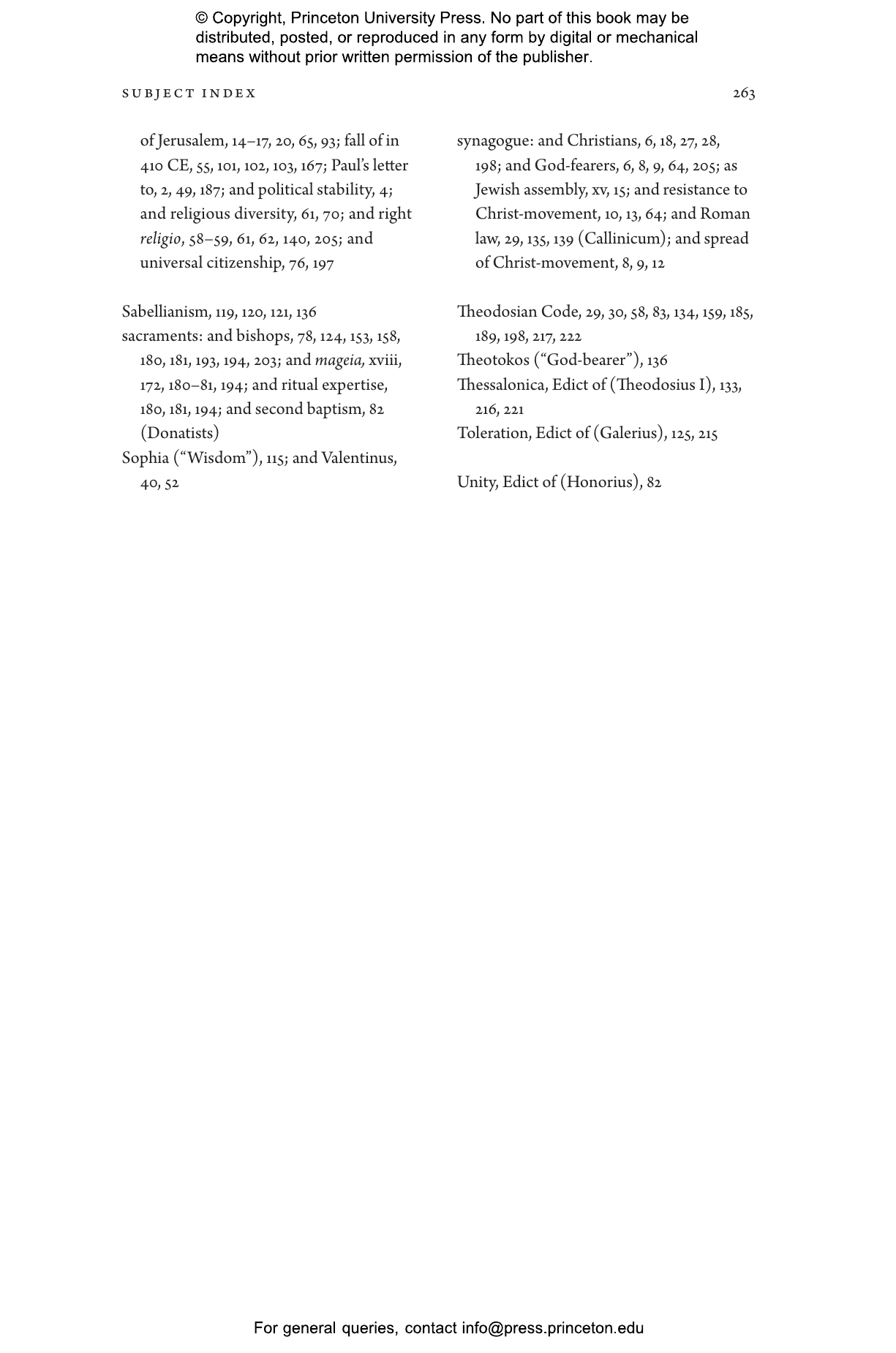The ancient Mediterranean teemed with gods. For centuries, a practical religious pluralism prevailed. How, then, did one particular god come to dominate the politics and piety of the late Roman Empire? In Ancient Christianities, Paula Fredriksen traces the evolution of early Christianity—or rather, of early Christianities—through five centuries of Empire, mapping its pathways from the hills of Judea to the halls of Rome and Constantinople. It is a story with a sprawling cast of characters: not only theologians, bishops, and emperors, but also gods and demons, angels and magicians, astrologers and ascetics, saints and heretics, aristocratic patrons and millenarian enthusiasts. All played their part in the development of what became and remains an energetically diverse biblical religion.
The New Testament, as we know it, represents only a small selection of the many gospels, letters, acts of apostles, and revelations that circulated before the establishment of the imperial church. It tells how the gospel passed from Jesus, to the apostles, thence to Paul. But by using our peripheral vision, by looking to noncanonical and paracanonical texts, by availing ourselves of information derived from papyri, inscriptions, and archaeology, we can see a different, richer, much less linear story emerging. Fredriksen brings together these many sources to reconstruct the lively interactions of pagans, Jews, and Christians, tracing the conversions of Christianity from an energetic form of Jewish messianism to an arm of the late Roman state.
Paula Fredriksen, the Aurelio Professor of Scripture Emerita at Boston University and professor emerita of comparative religion at the Hebrew University of Jerusalem, is a member of the American Academy of Arts and Sciences. She is the author of When Christians Were Jews: The First Generation; From Jesus to Christ: The Origins of the New Testament Images of Jesus; Sin: The Early History of an Idea (Princeton); and other books.
"Precisely written. . . .Unique and rich in history."—Kimberly Anne, World History Encyclopedia
"A well-researched, engrossing read that demonstrates why the Jewish and Christian communities went their separate ways and how Christianity not only became a spiritual practice but also a political force."—Library Journal
"Comprehensive. . . . From the question of religious diversity and perspectives on martyrdom, to religion as organised within Empire, Fredriksen skilfully condenses half a millennia of religious activity into an examination of the quickly changing human tapestry at the core of early life."—Megan Hughes, Redbrick Culture
“An evocative account. Ancient Christianities is accessible, compelling, and characteristically brilliant, a boon to student, scholar, and general reader alike.”—Bart Ehrman, University of North Carolina at Chapel Hill
“Paula Fredriksen’s Ancient Christianities is a masterpiece. Written with a crispness that is the result of vast state-of-the-art knowledge deeply thought through, it is full of salutary surprises. It traces the unexpected emergence of a wide variety of Christianities, all in dialogue with a vigorous Judaism and with a far-from-moribund traditional religion which only later came to be known (and to Christians only) as ‘paganism.’ Ancient Christianities is an outstanding contribution not only to the history of Christianity in its many forms, but also to our understanding of the religious life of the Mediterranean and the Middle East as a whole—Christian, ‘pagan’ and Jewish alike—in the last centuries of the ancient world.”—Peter Brown, author of Journeys of the Mind and Through the Eye of a Needle
“Rarely have I been as enthralled by a book about early Christianity. It was a delight to read. Fredriksen possesses the rare ability to simplify complicated evidence and arguments into intelligible prose without devolving into crass generalizations and inaccuracies.”—Candida Moss, author of God’s Ghostwriters
“In this insightful, accessible, and sympathetic volume, Fredriksen introduces the varieties of belief and performance, propaganda and politics, sex and celibacy, intolerant zeal and practical malleability that lead to the creation of what comes to be known as Christianity. A great history—and a great read.”—Amy-Jill Levine, author of The Misunderstood Jew: The Church and the Scandal of the Jewish Jesus


